
Project: Water narratives
Artists: Mangacu Collective
Consisting of: Ana Bravo Pérez, Tomas Espinosa, Maria Teresa Guerrero Bucheli, Mariela Meza, Paula Gempeler
With confirmed participants: Julian Wijnstein (Storytelling), Wouter Neuhaus (ZwartxOranje), Merve Kaçmış & Marisella de Cuba (WePromise), Jerrol Lashley (Stichting Netwerk).
Workshops:
Sat. 15 Oct., 13:00-17:00: The taste of memory
Sun. 16 Oct., 13:00-17:00: The voice of feeling
Thu. 20 Oct., 13:00-17:00: The body of movement
Fri. 21 Oct., 13:00-17:00: The message of water
Exhibition: 21 - 29 October 2022
This project contributes to the conversations on decoloniality in the form of an art project consisting of a number of workshops and an exhibition at HMK, departing from two distant harbor cities: Tumaco at the Colombian coast and Hoorn in the Netherlands. These cities have been marked by their colonial past that defines their present day.
With these workshops, the Mangacu Collective from Colombia brings together two geographical contexts marked by water: Hoorn and Tumaco, both cities were enslaved people arrived to never return home.The members of the Mangacu collective invite you to participate in four different workshops developed around the question:
What could water tell us if it could speak?
The workshops will allow us to approach the transatlantic past in a sensory way and ask questions about the visible and invisible traces, knowledge and memories carried in the body and still present in these two localities of Hoorn and Tumaco. The Mangacu Collective invited local voices to join the workshops where we will explore deep memories through food, sounds, the stories archived in our bodies. We will approach the power of sound and poetry as a healing element. And although miles and miles of water lay between Hoorn and Tumaco, the similarities and learnings will surface throughout the workshops.
Workshop 1: The taste of memory

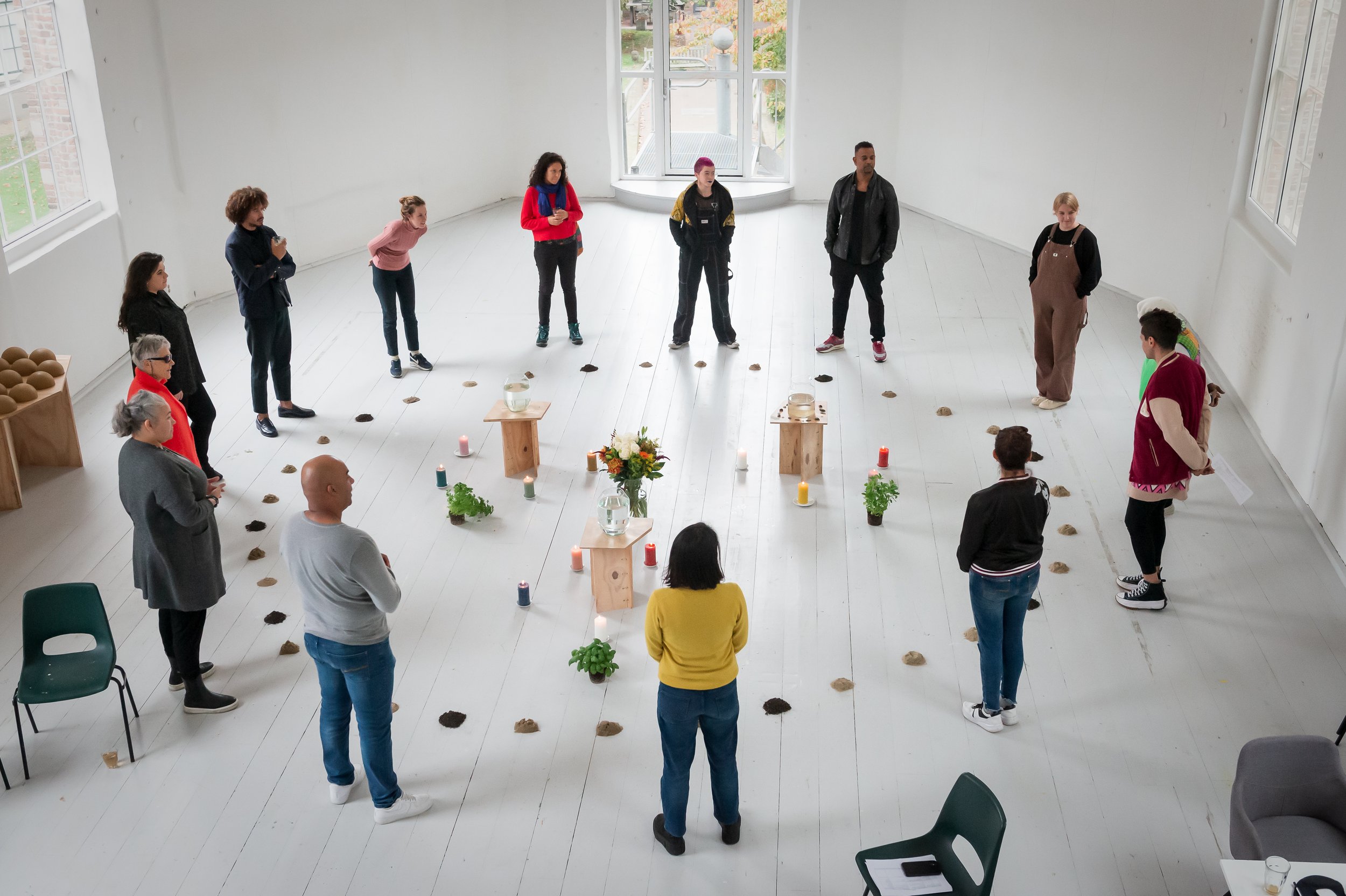

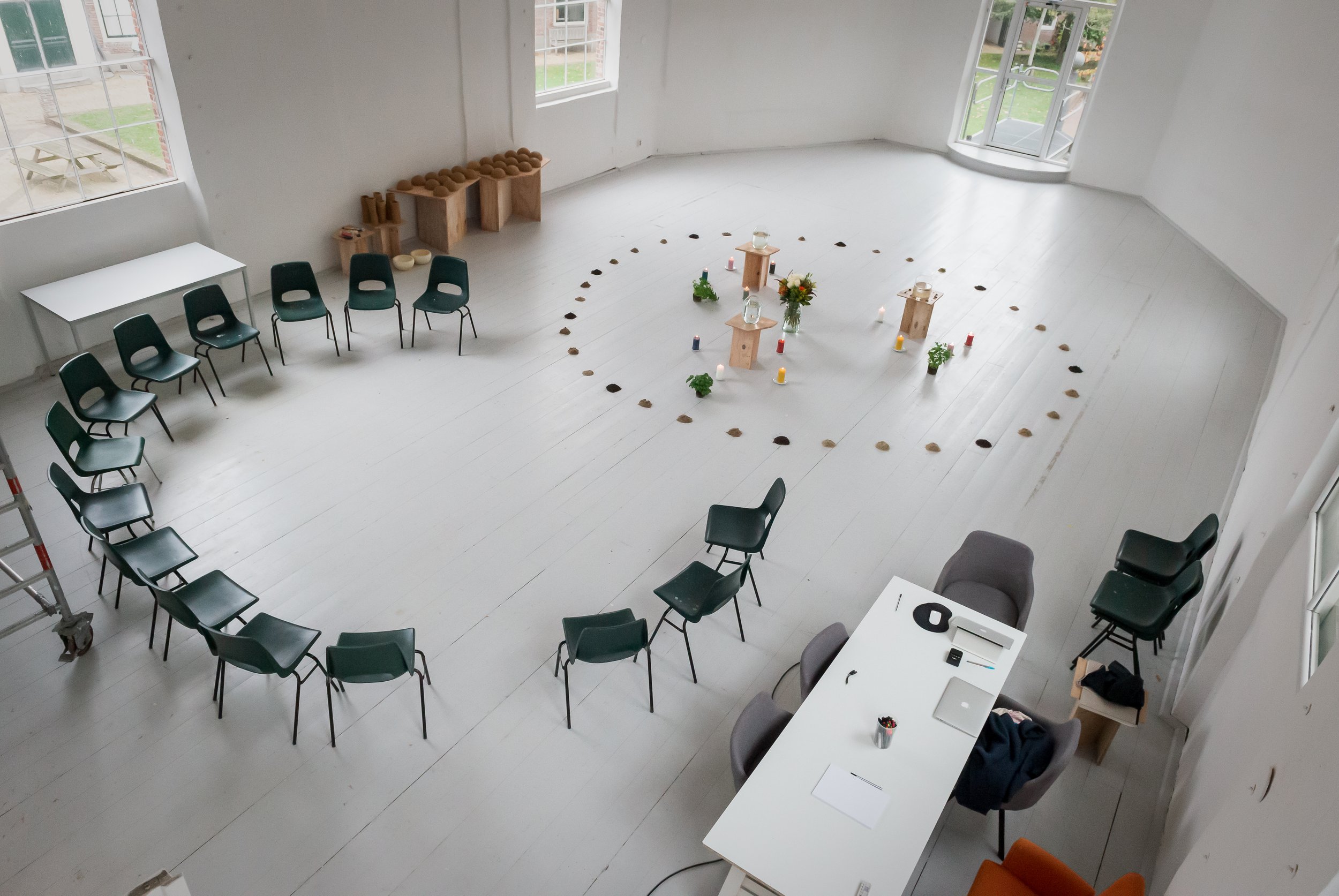
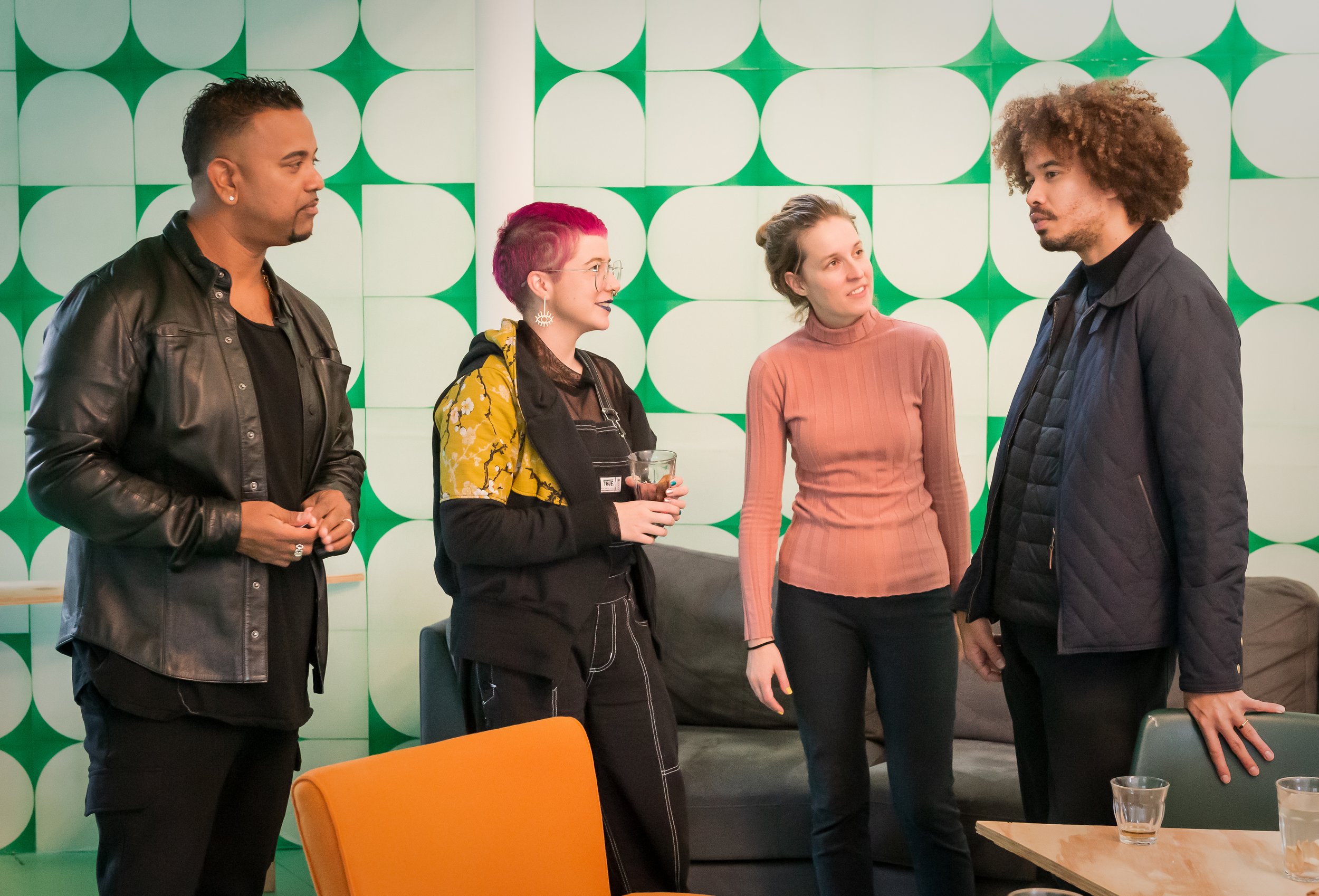
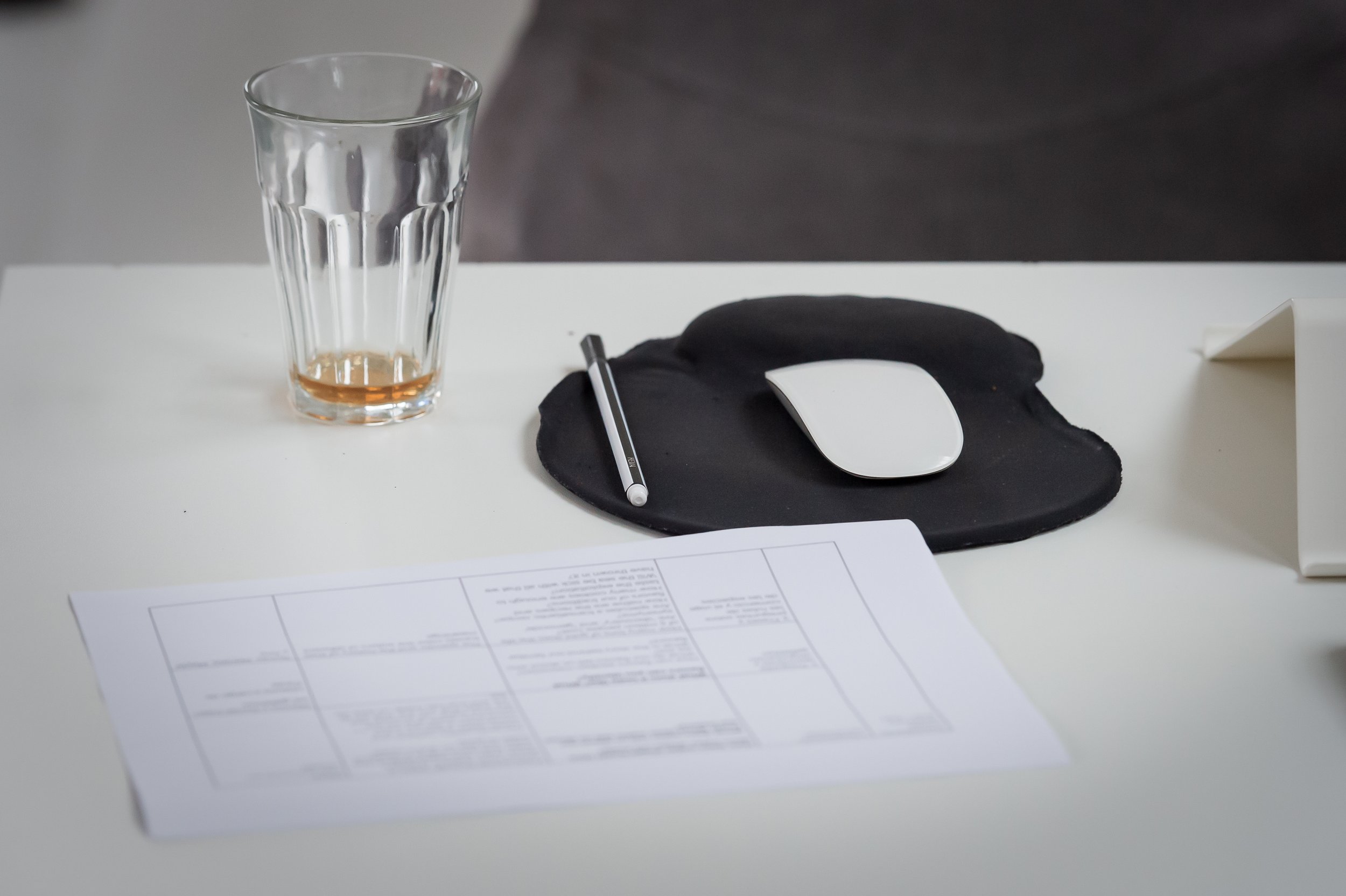





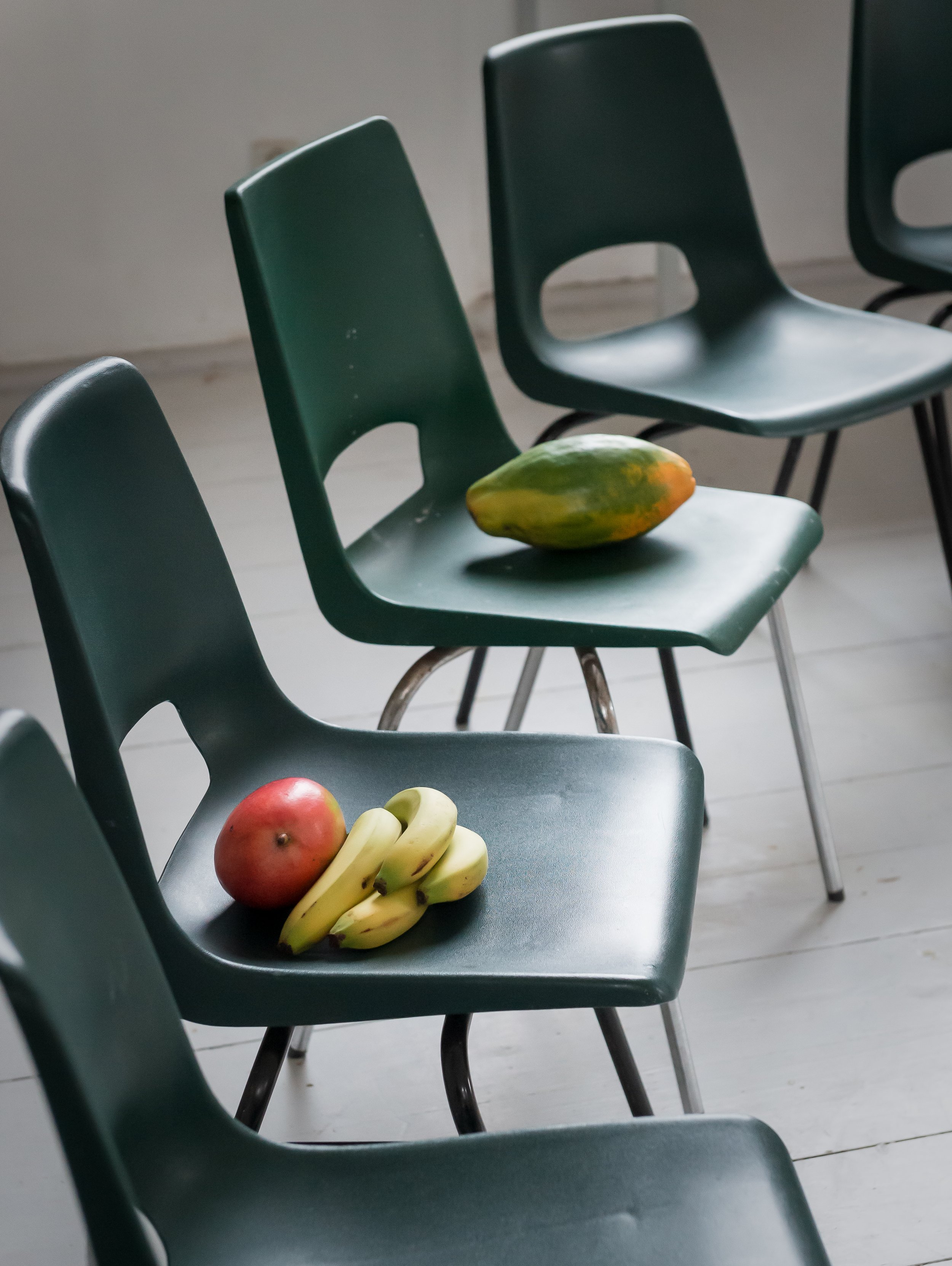







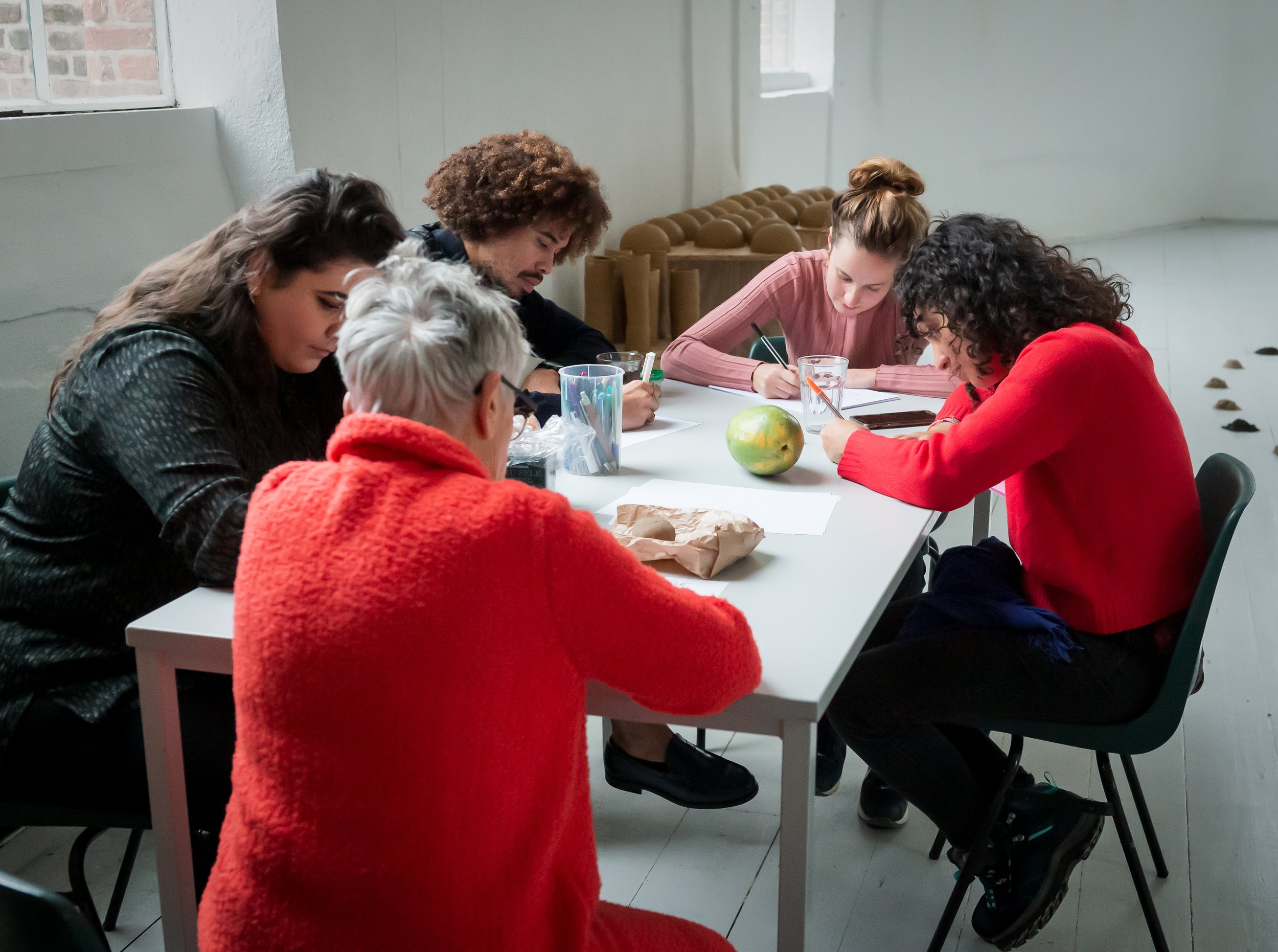
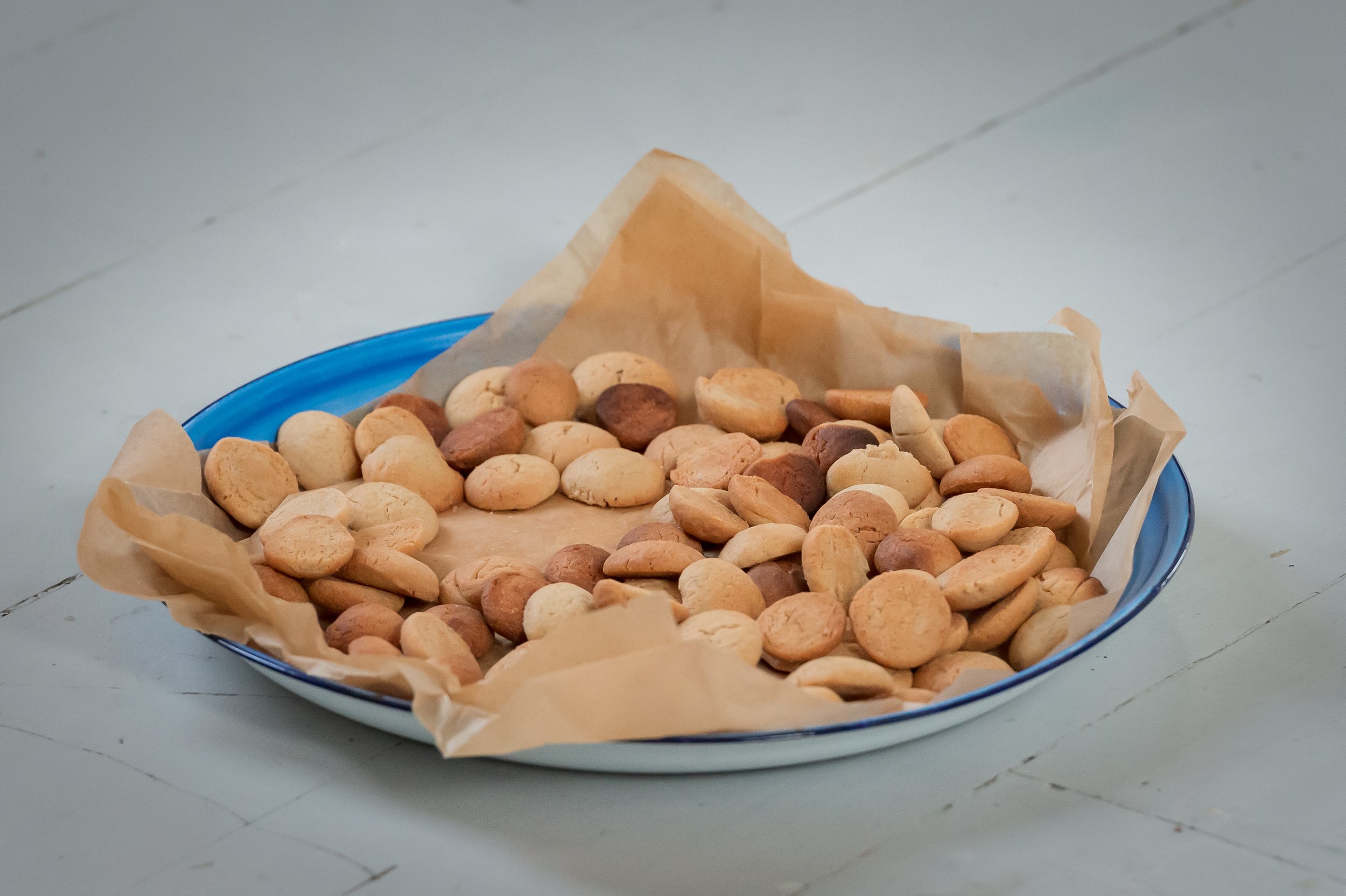


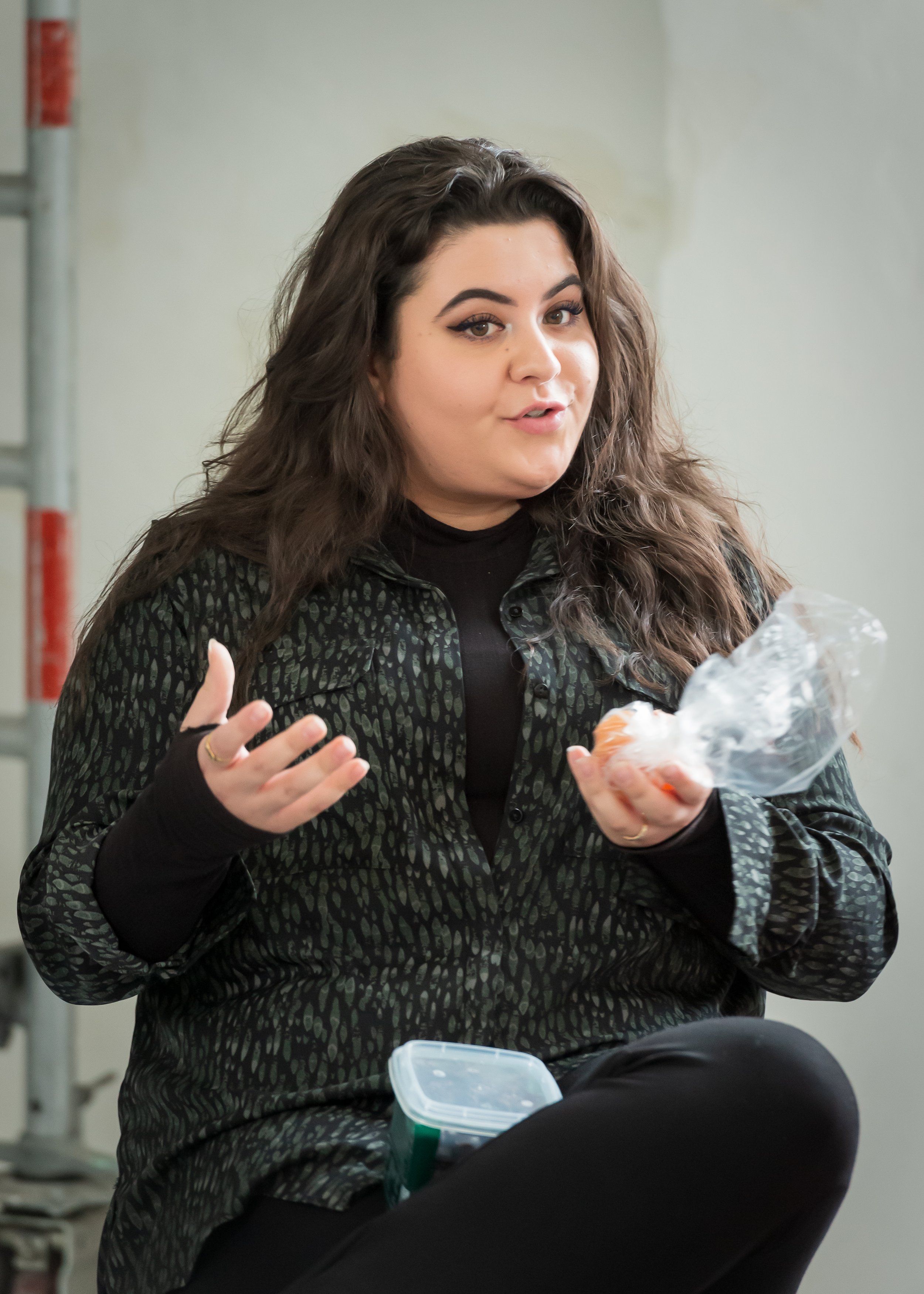


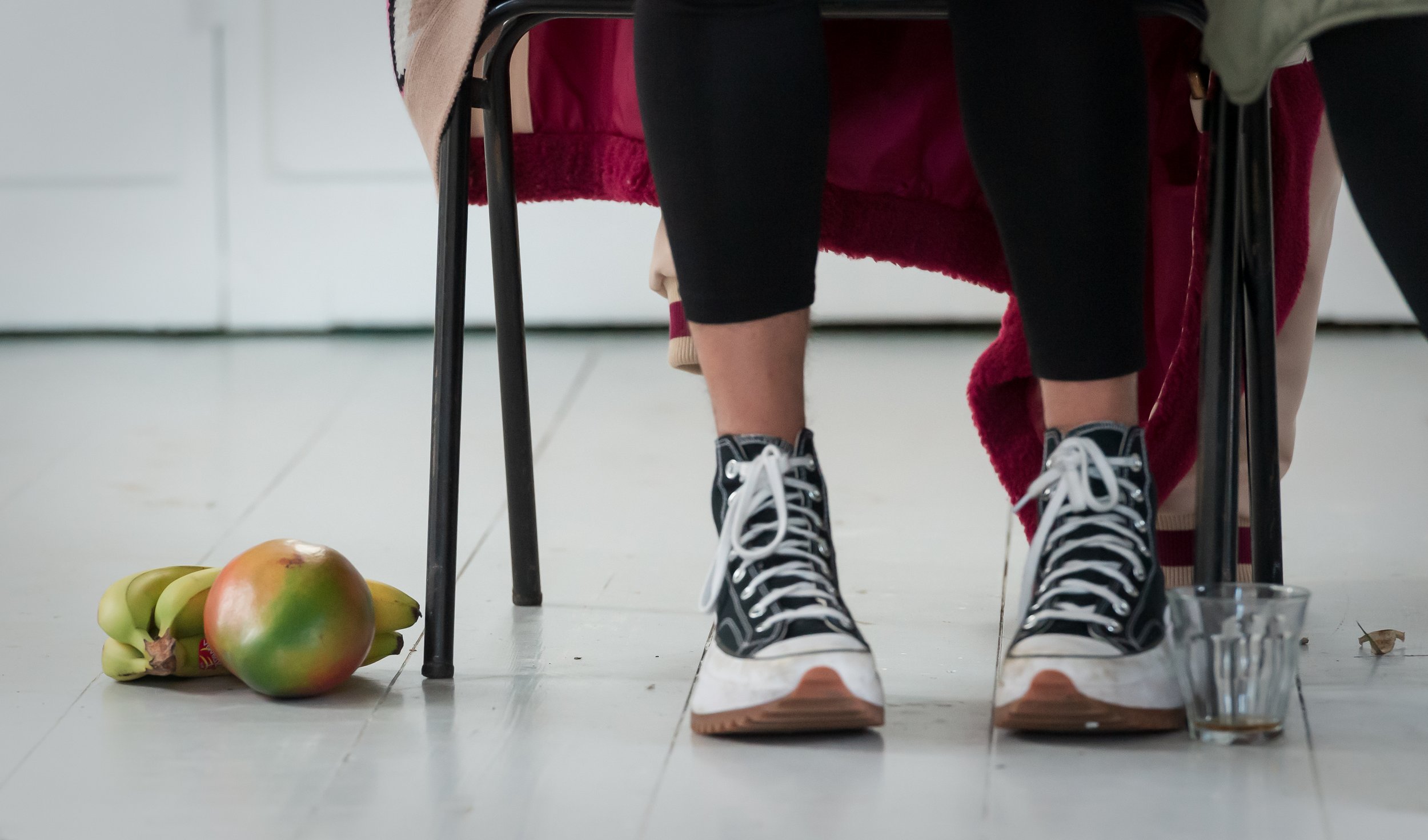



Workshop 2: The voice of feeling


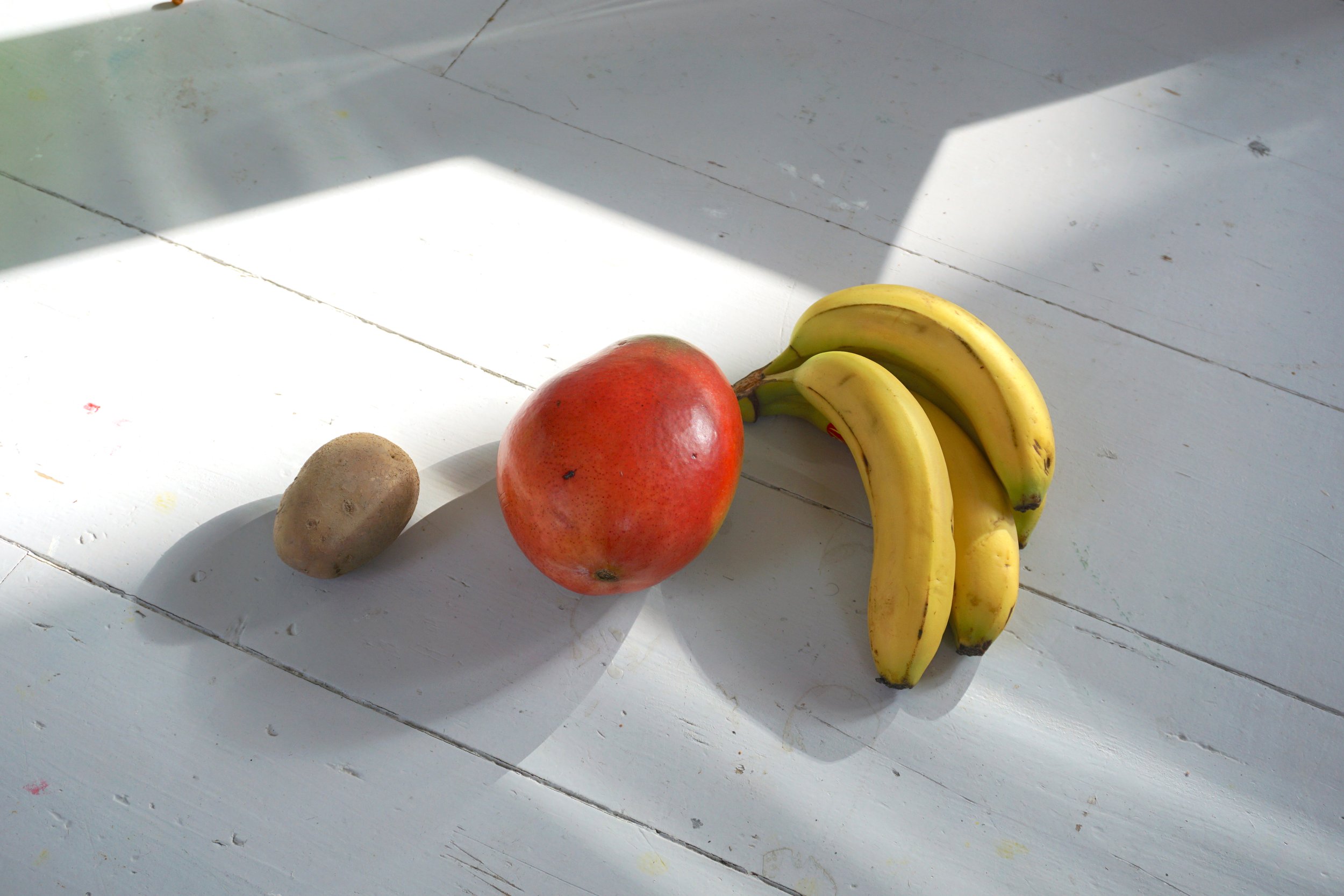



















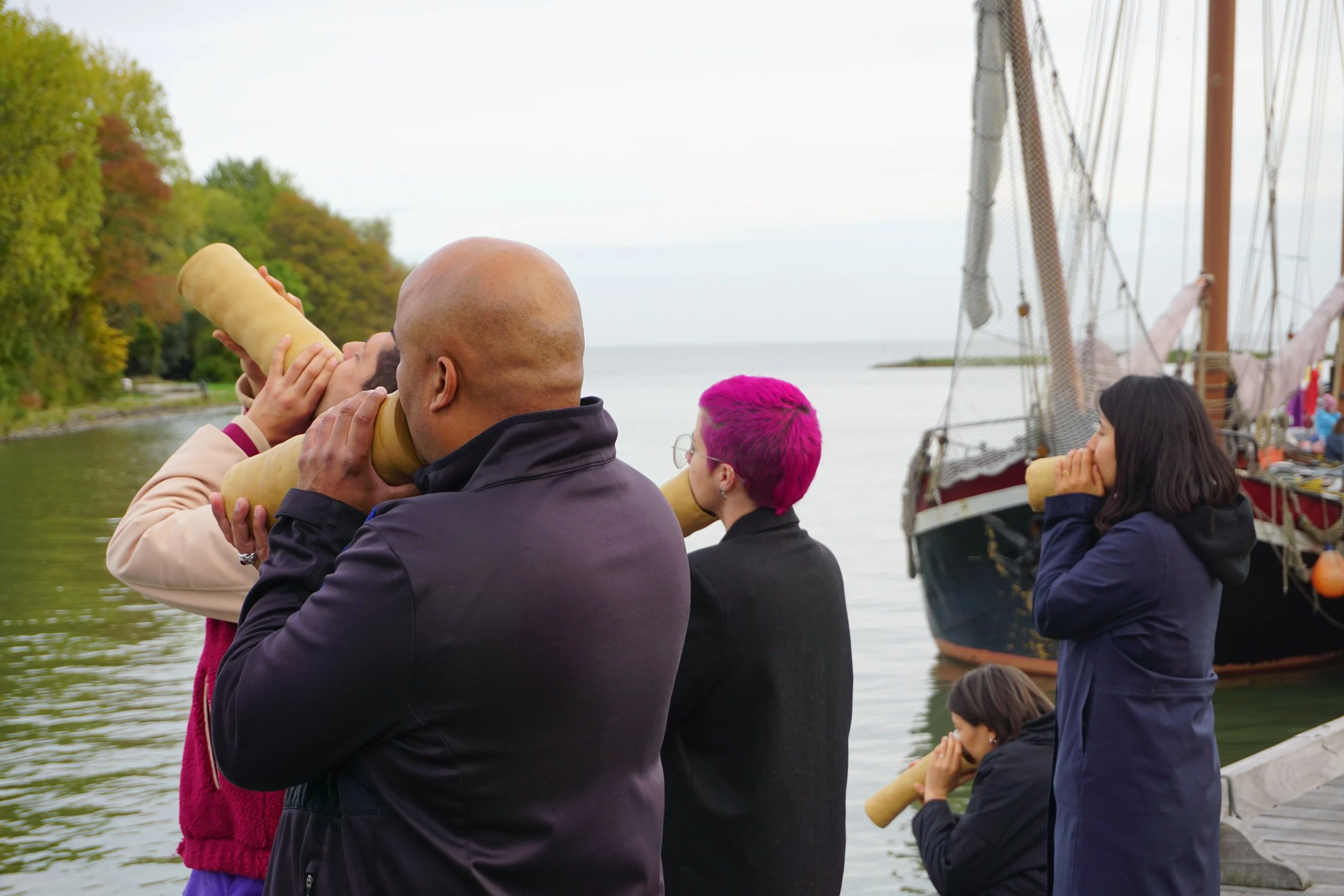


Workshop 3: The body of movement
















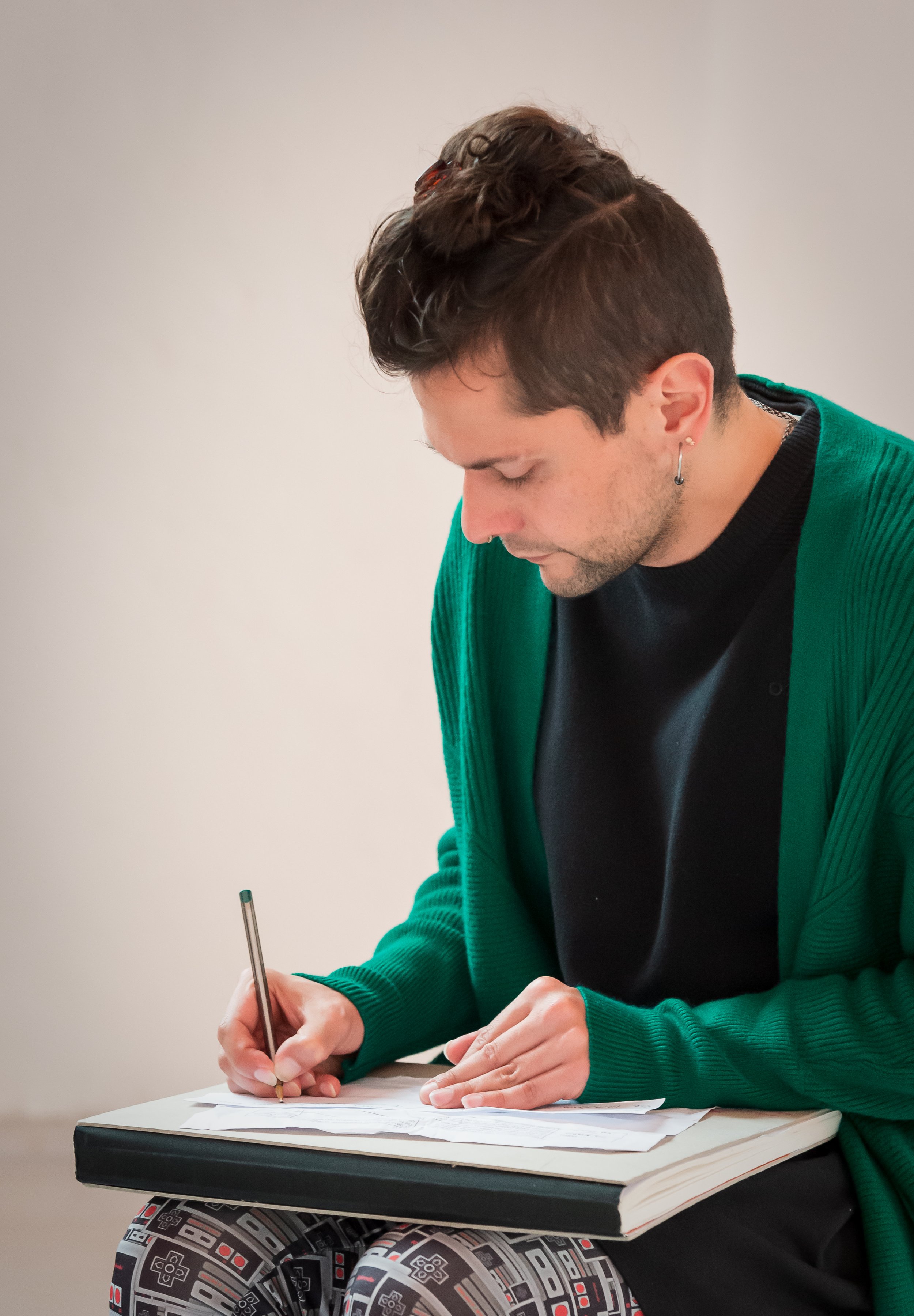
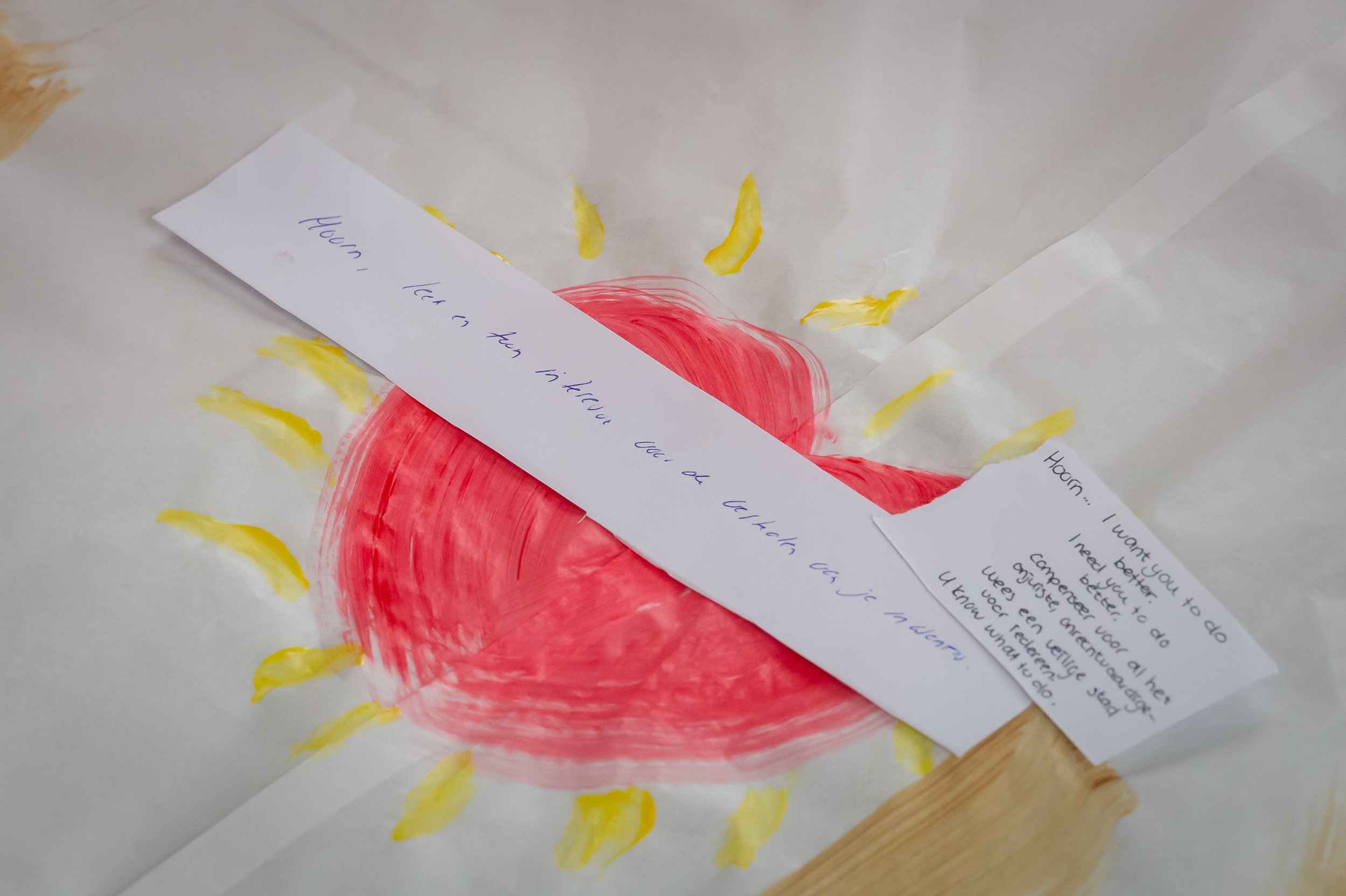





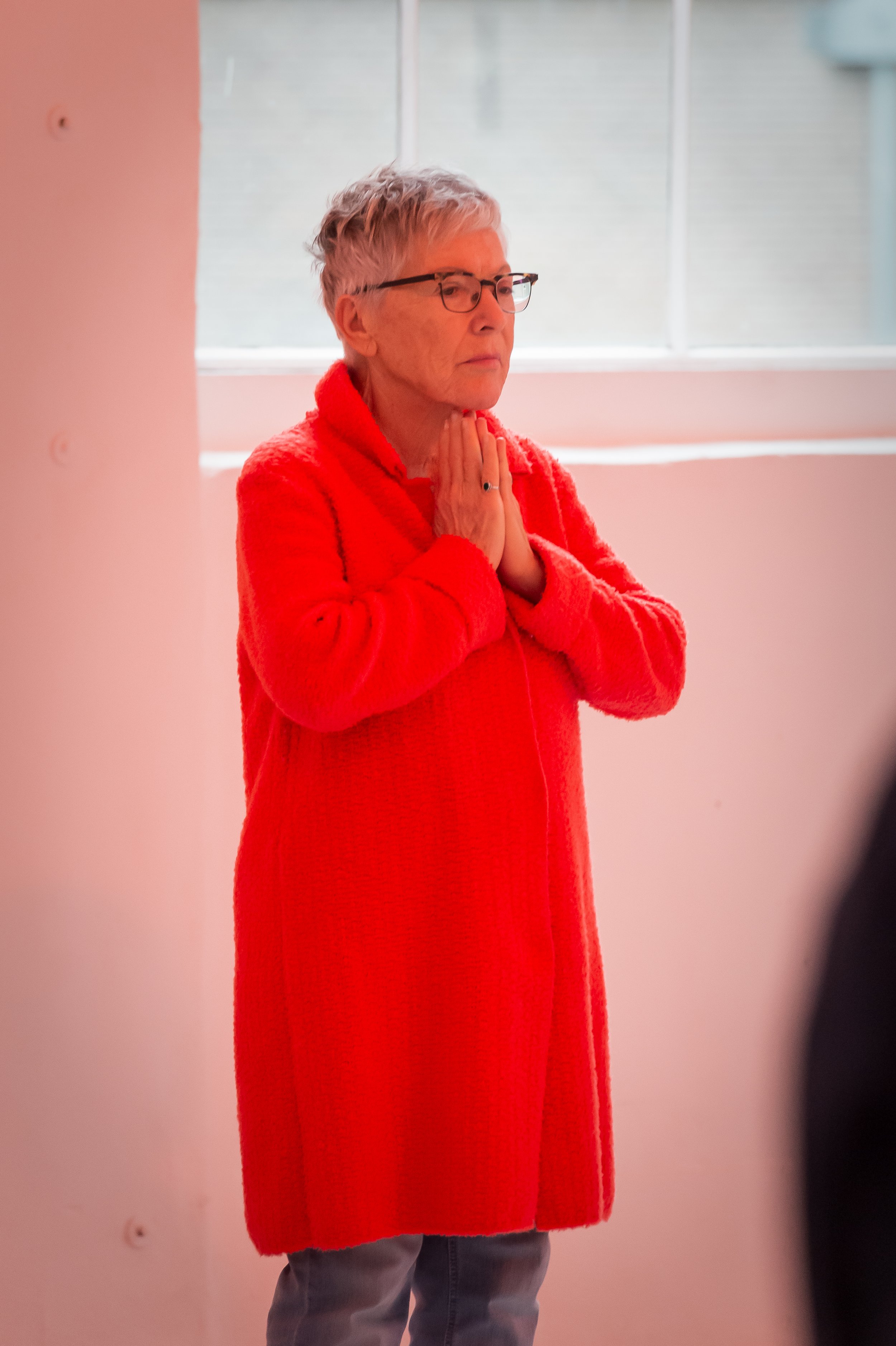
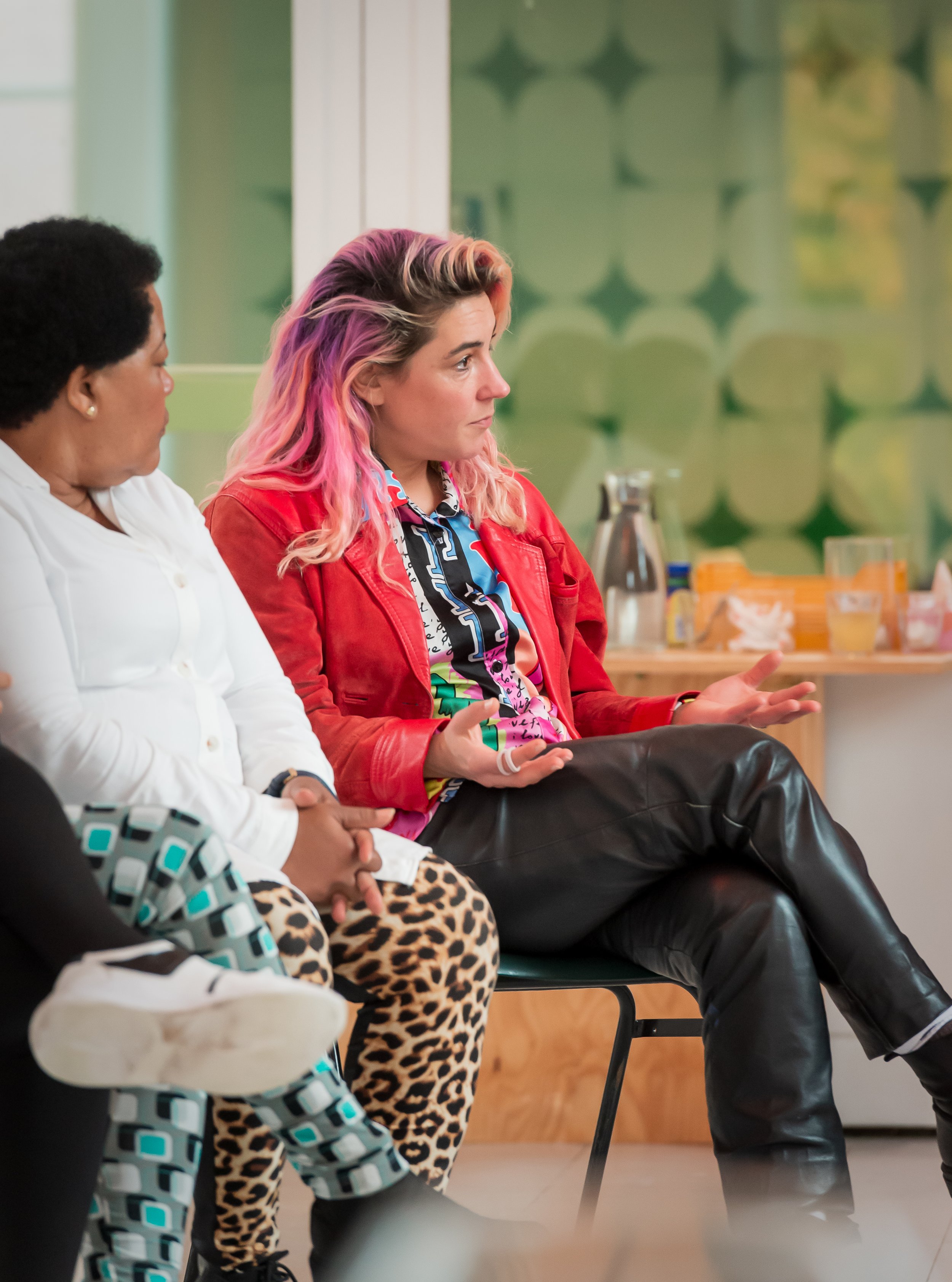
Workshop 4: The message of water





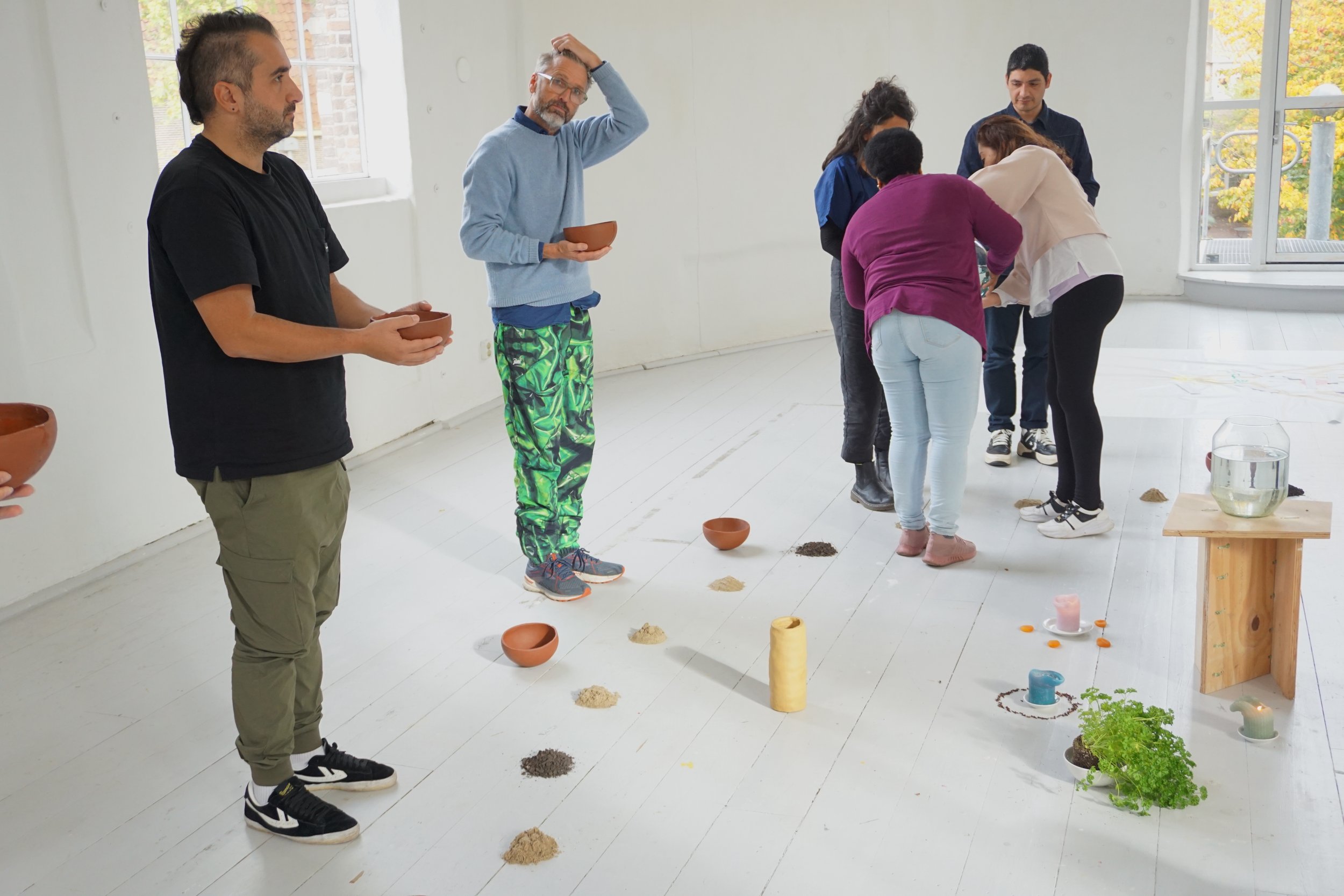







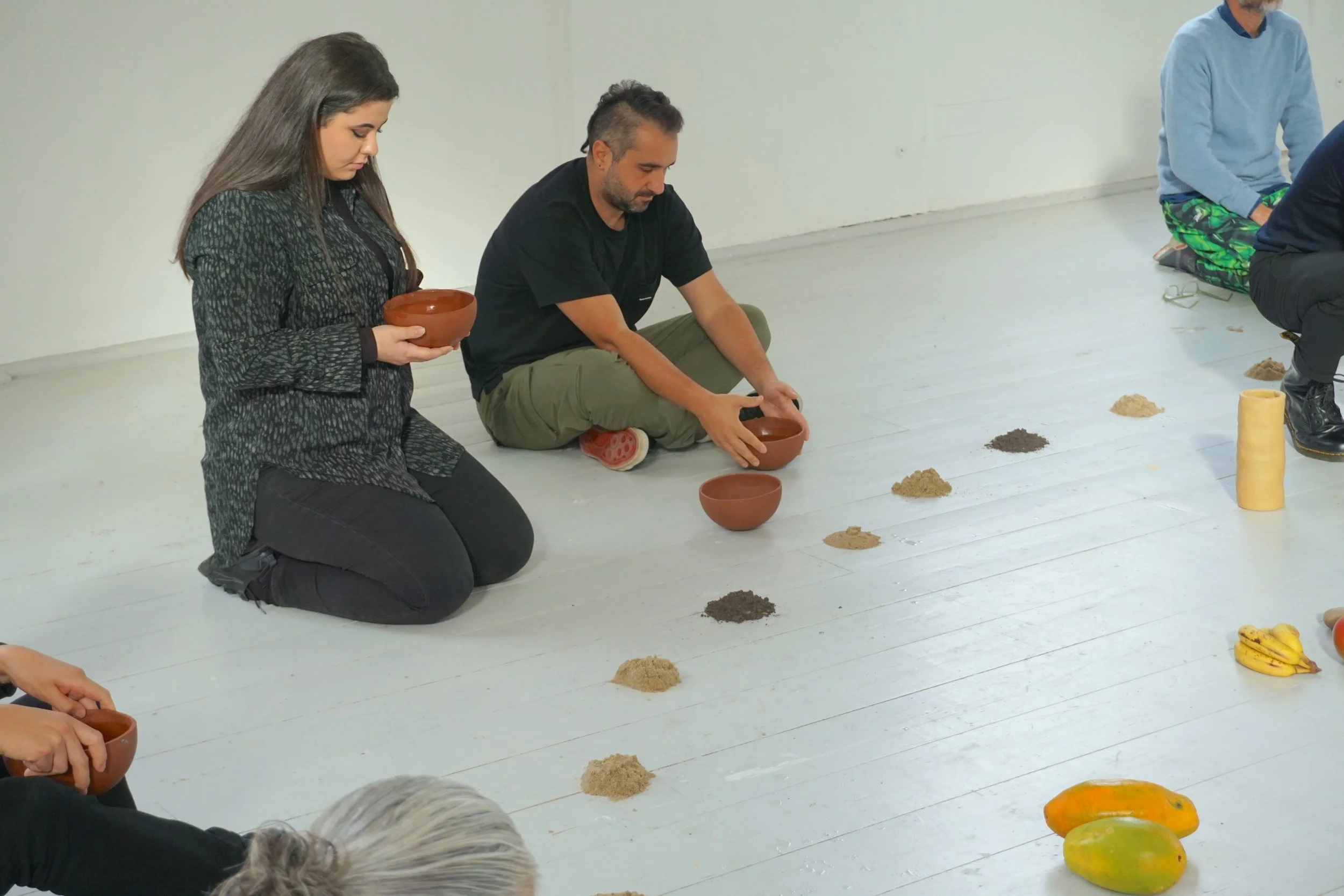











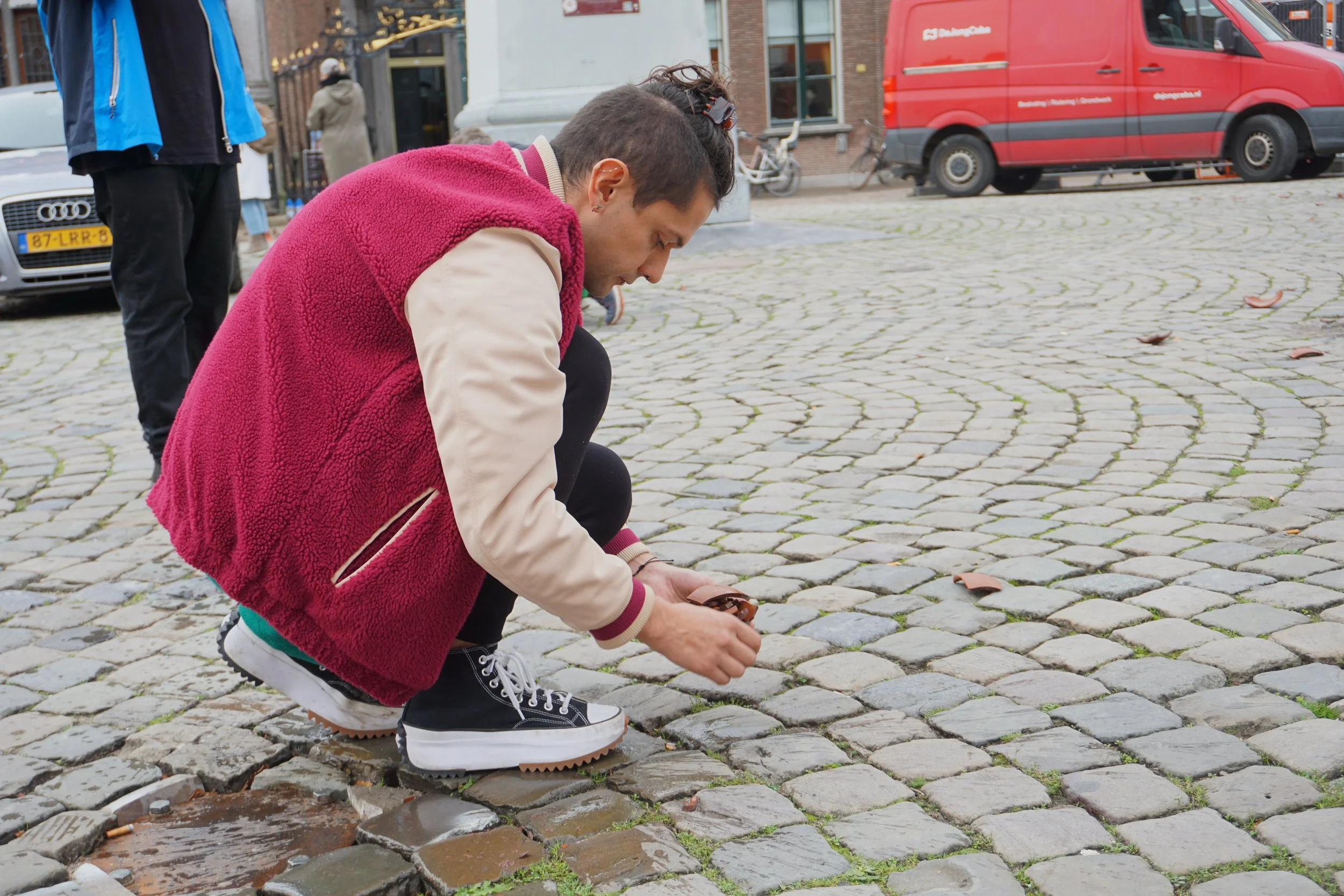

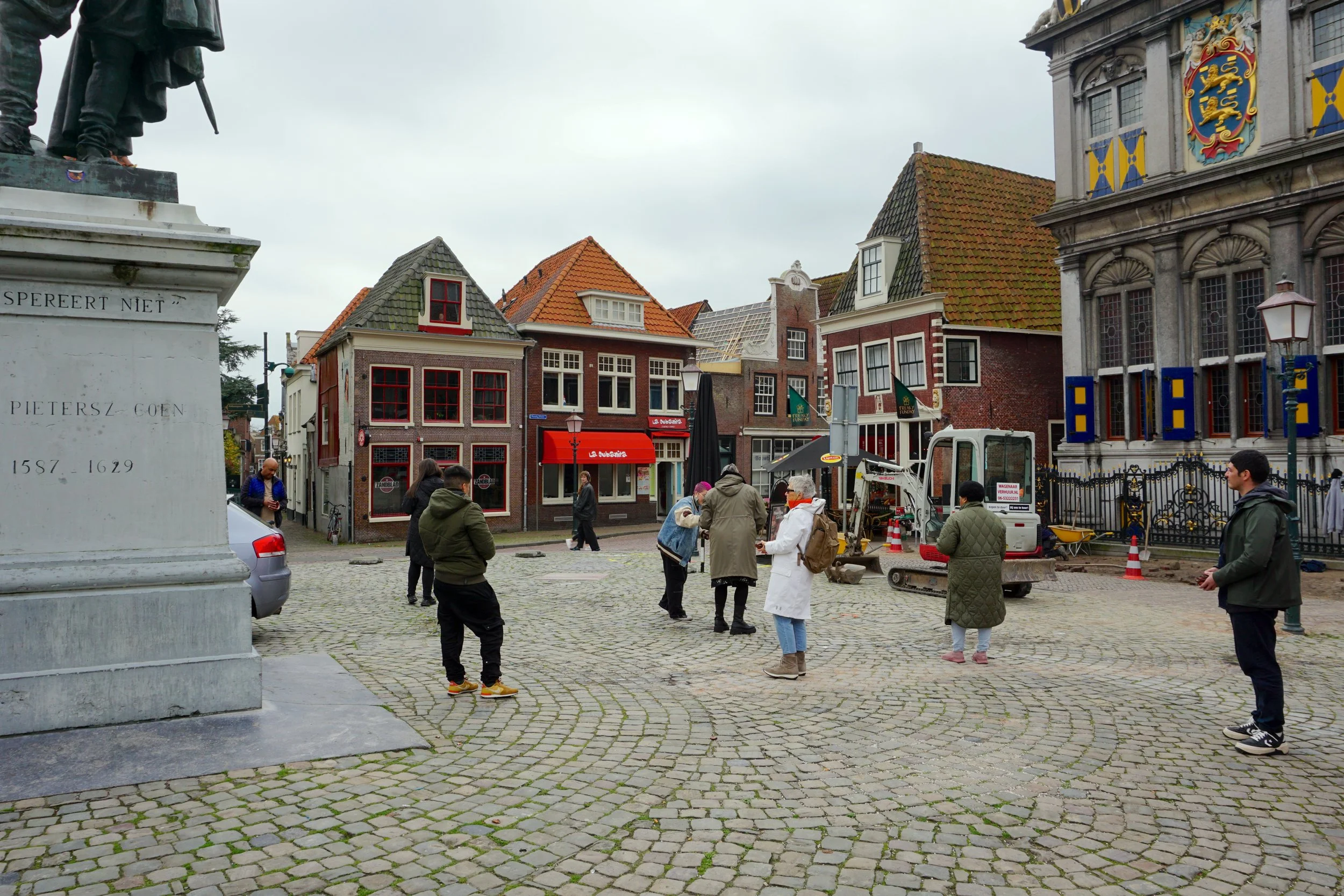





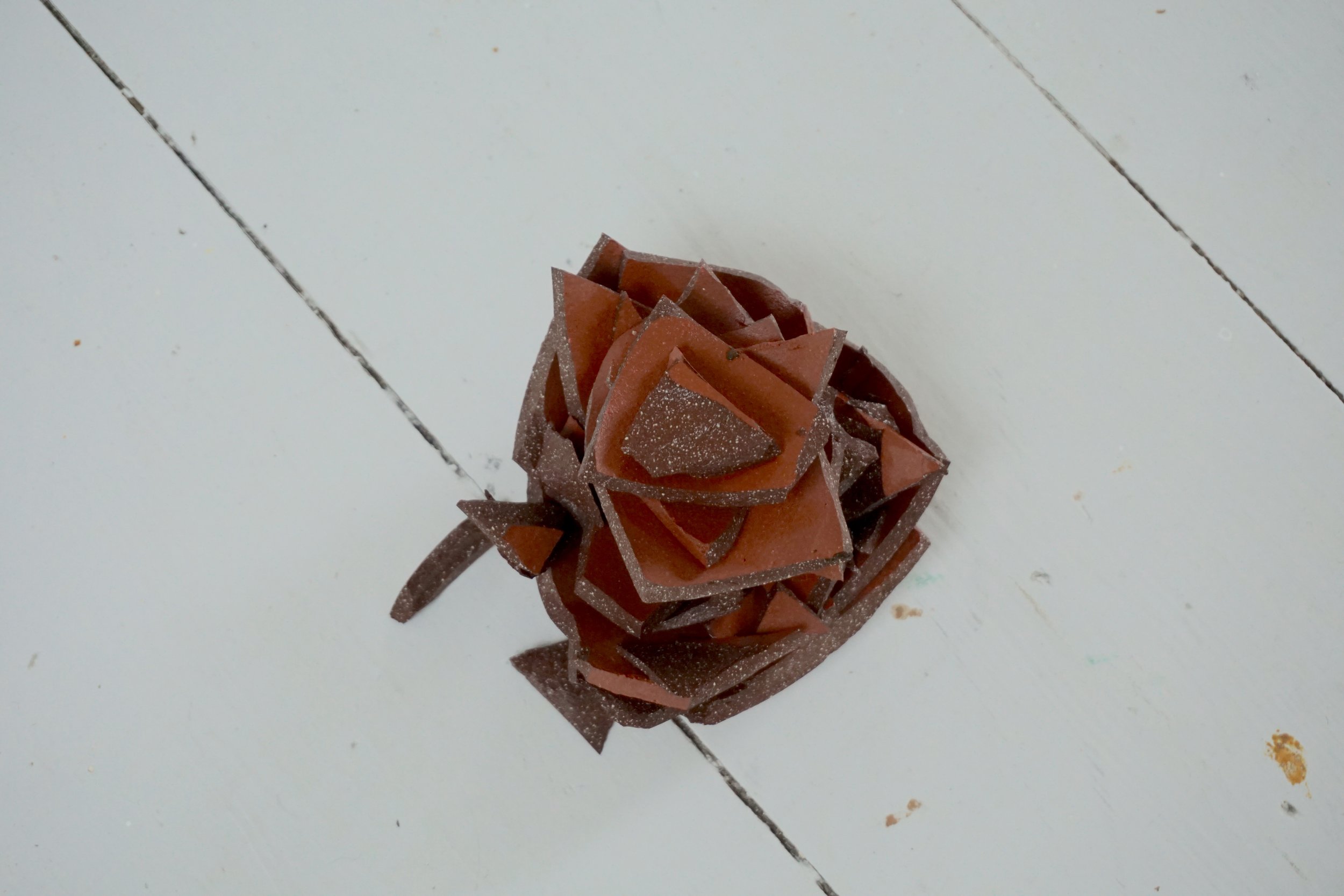










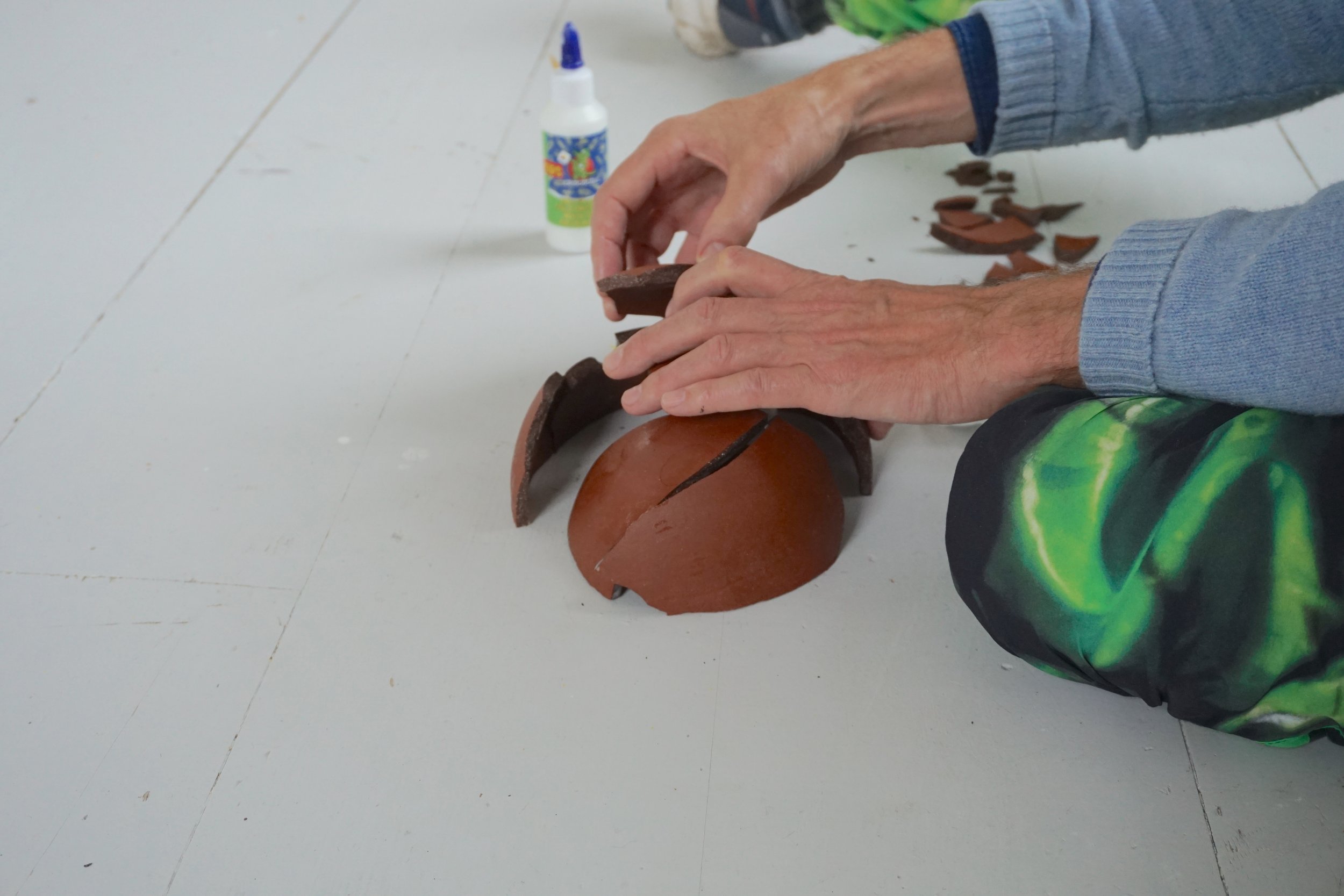

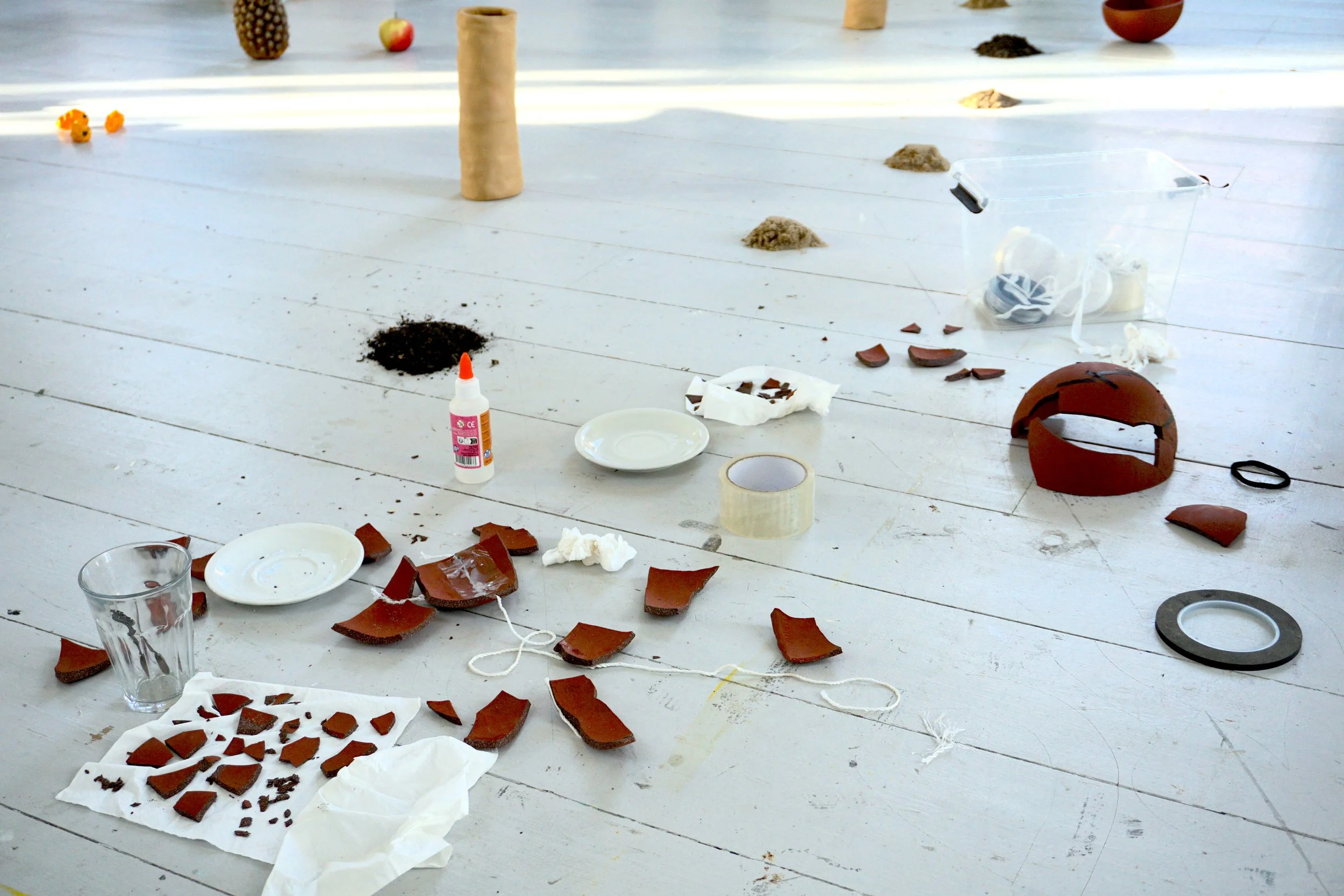
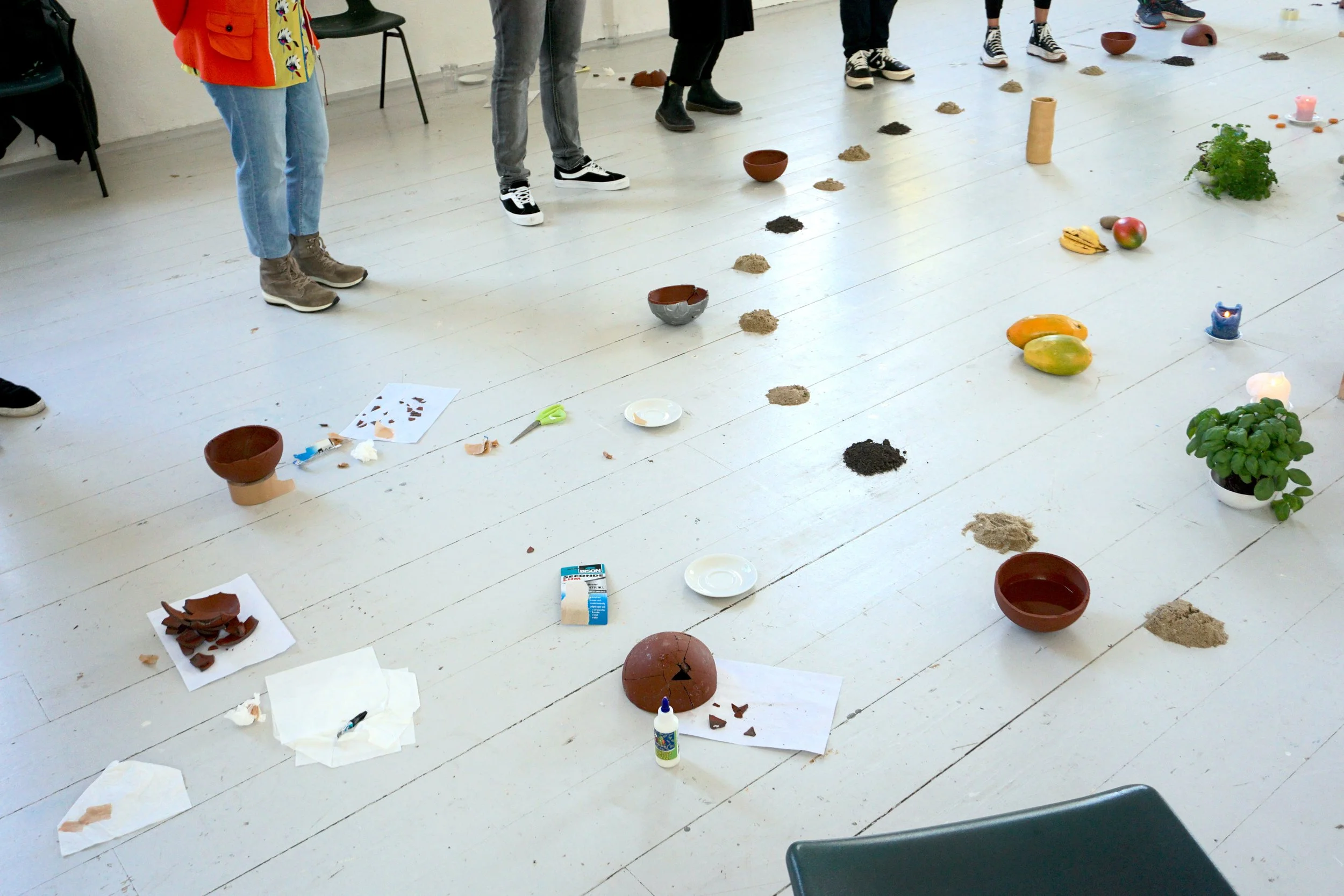

Exhibition: Water narratives; might it be the nostalgia of the water





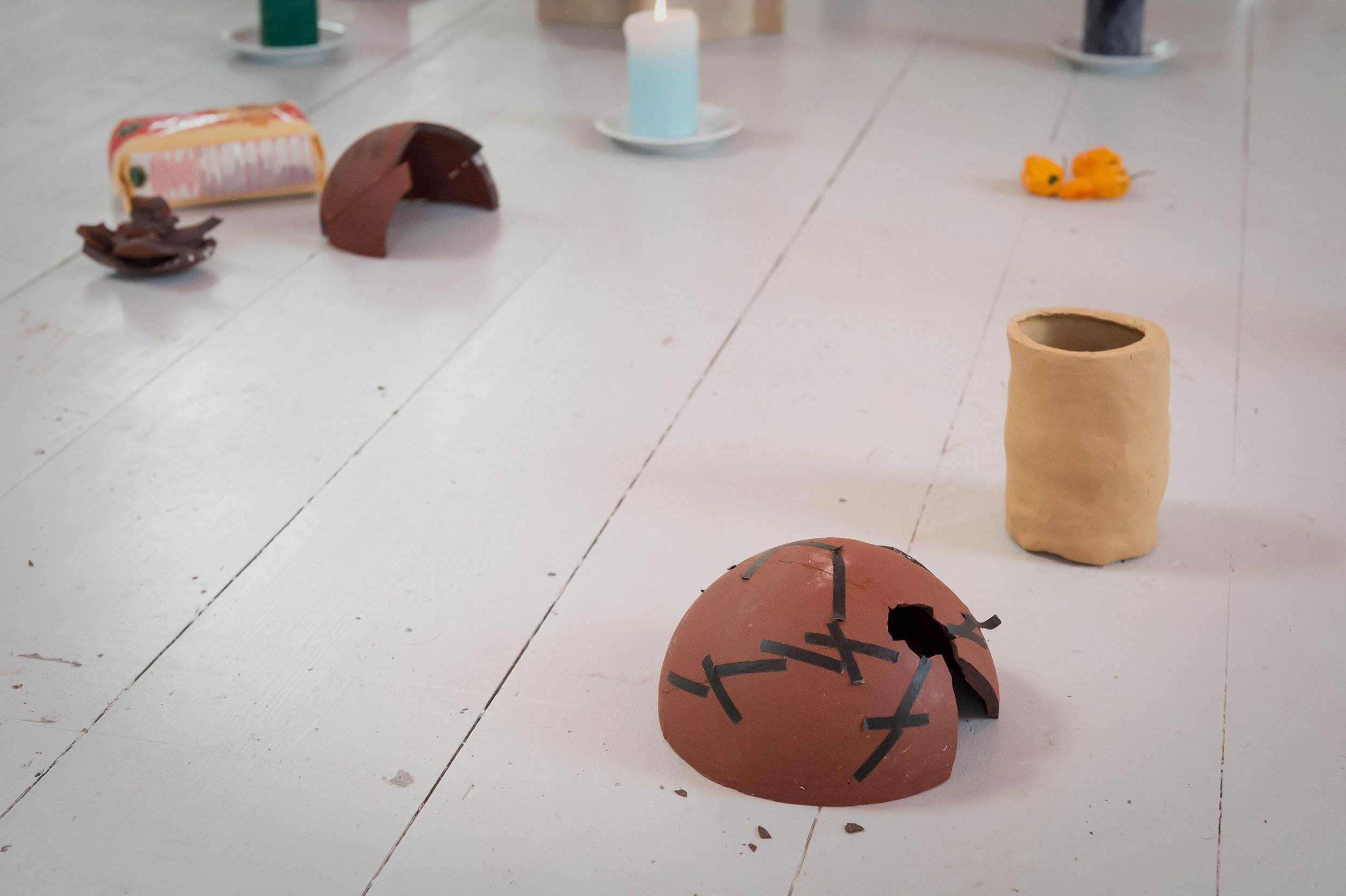



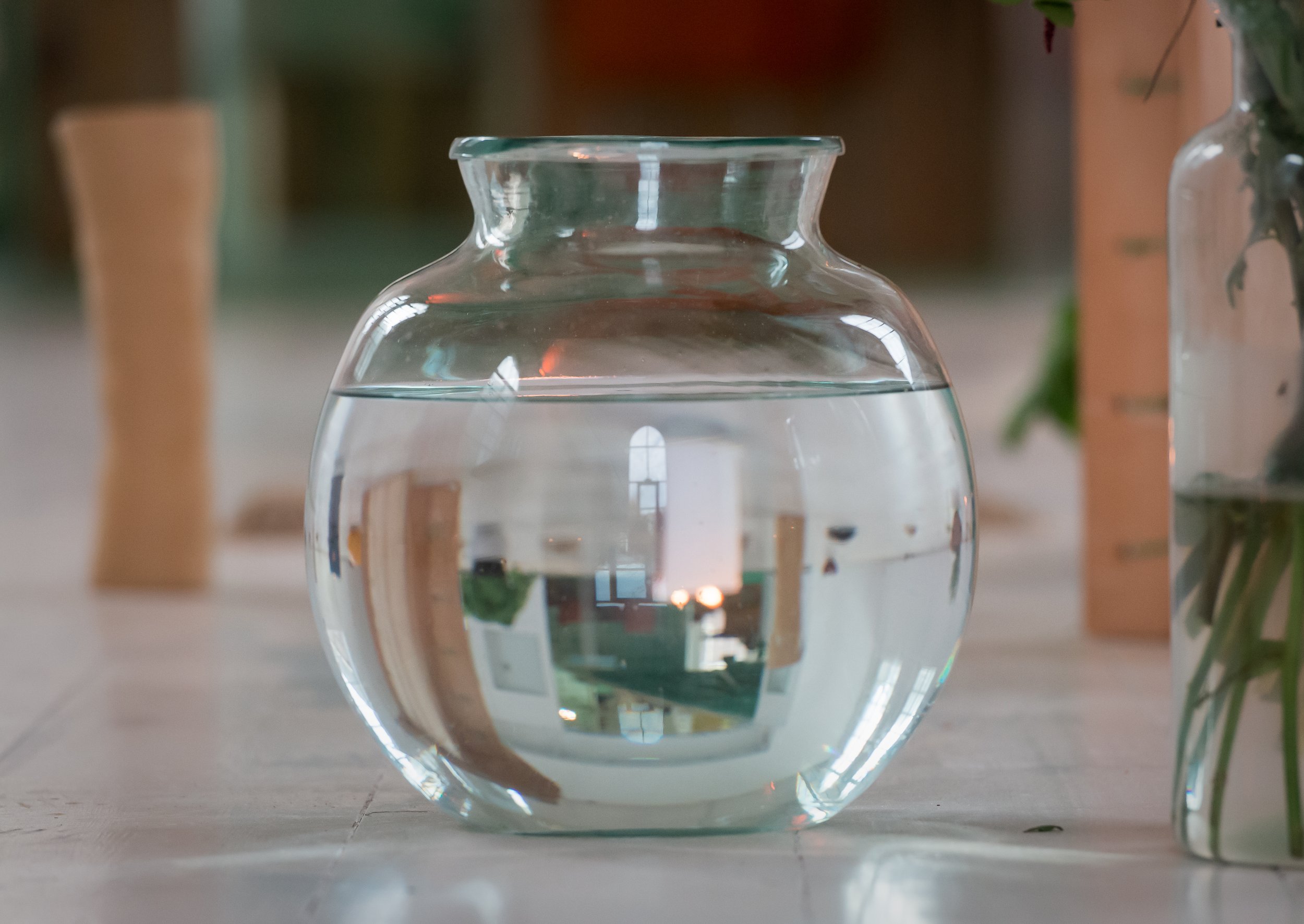
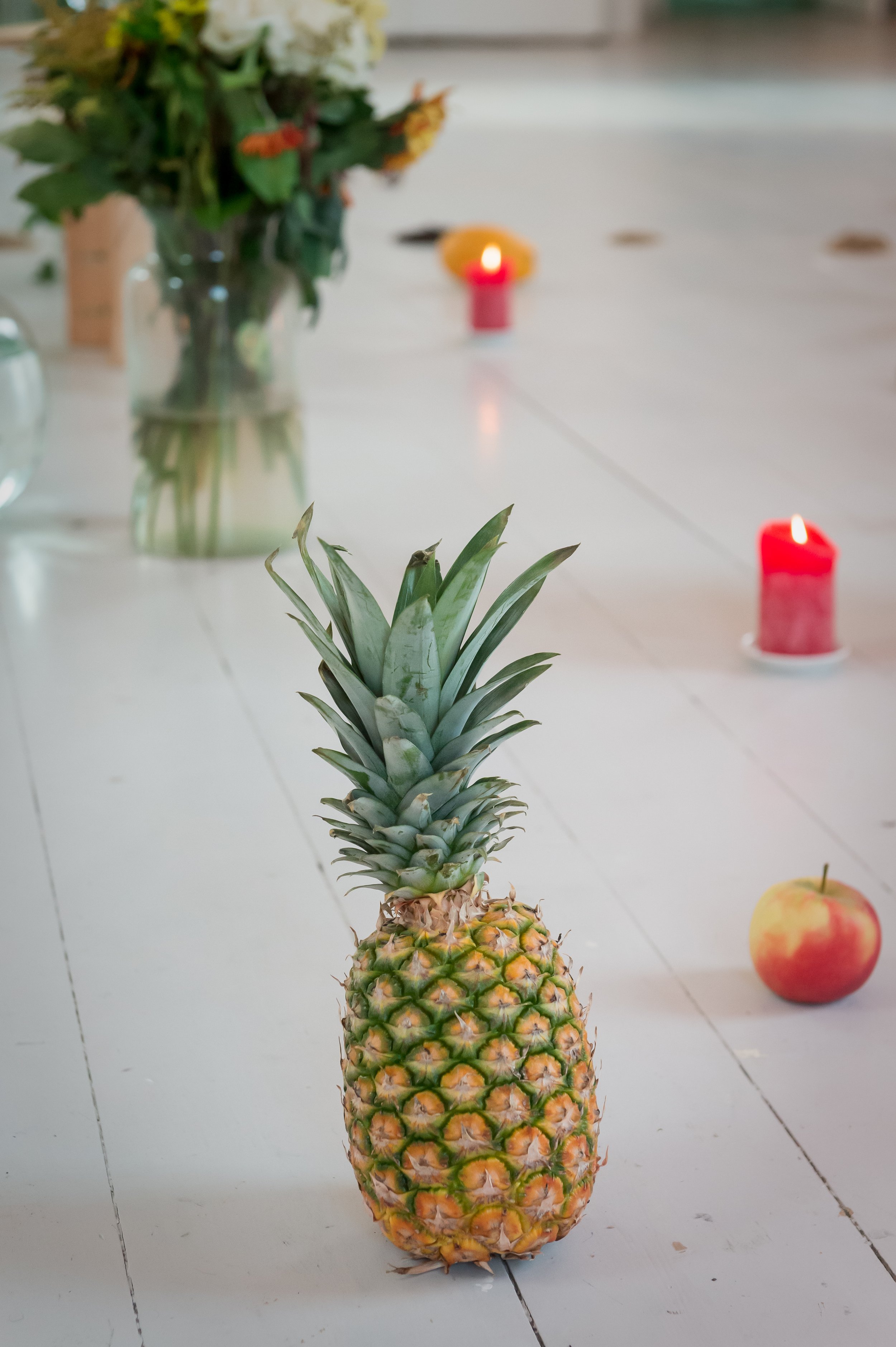





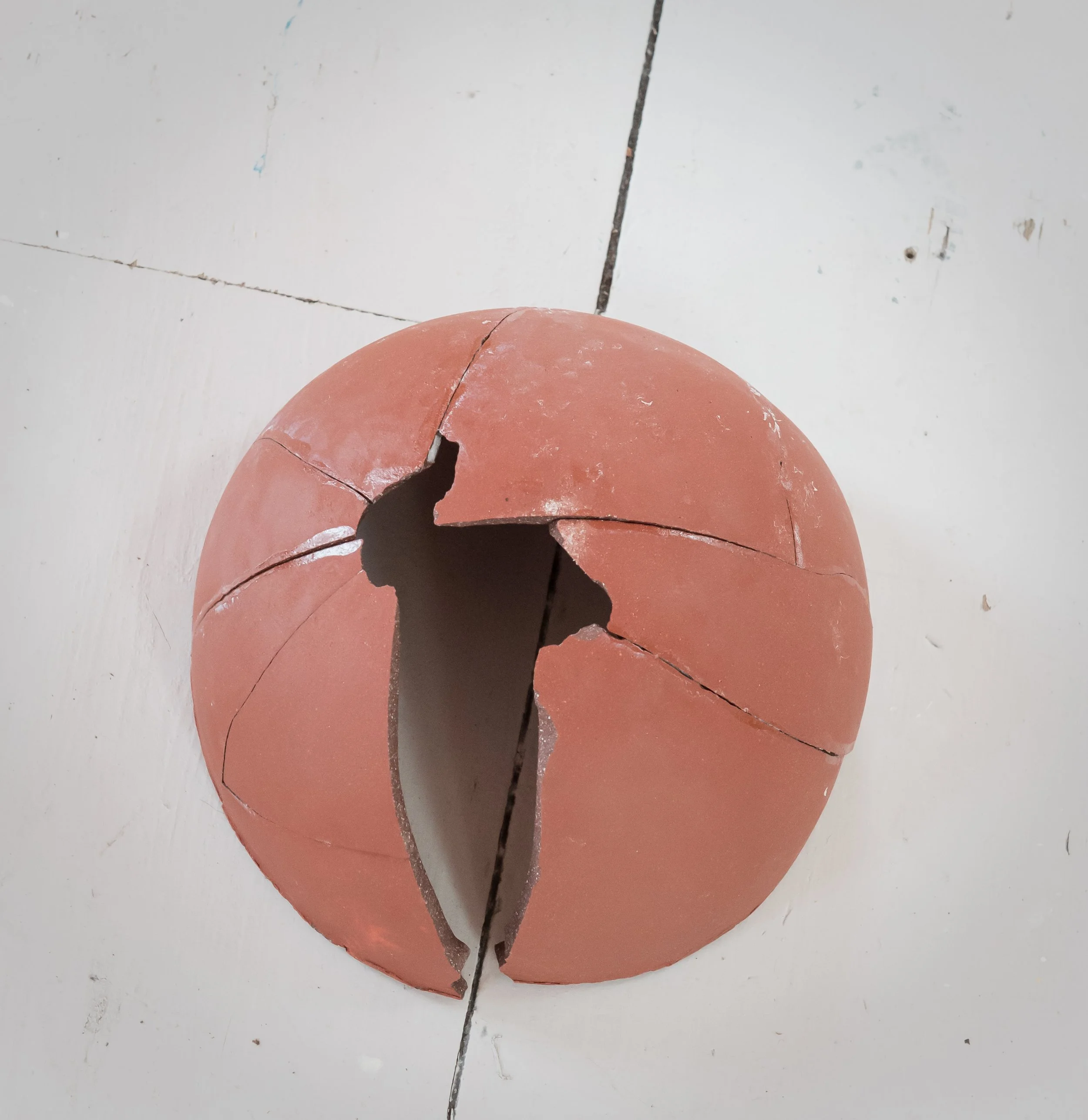

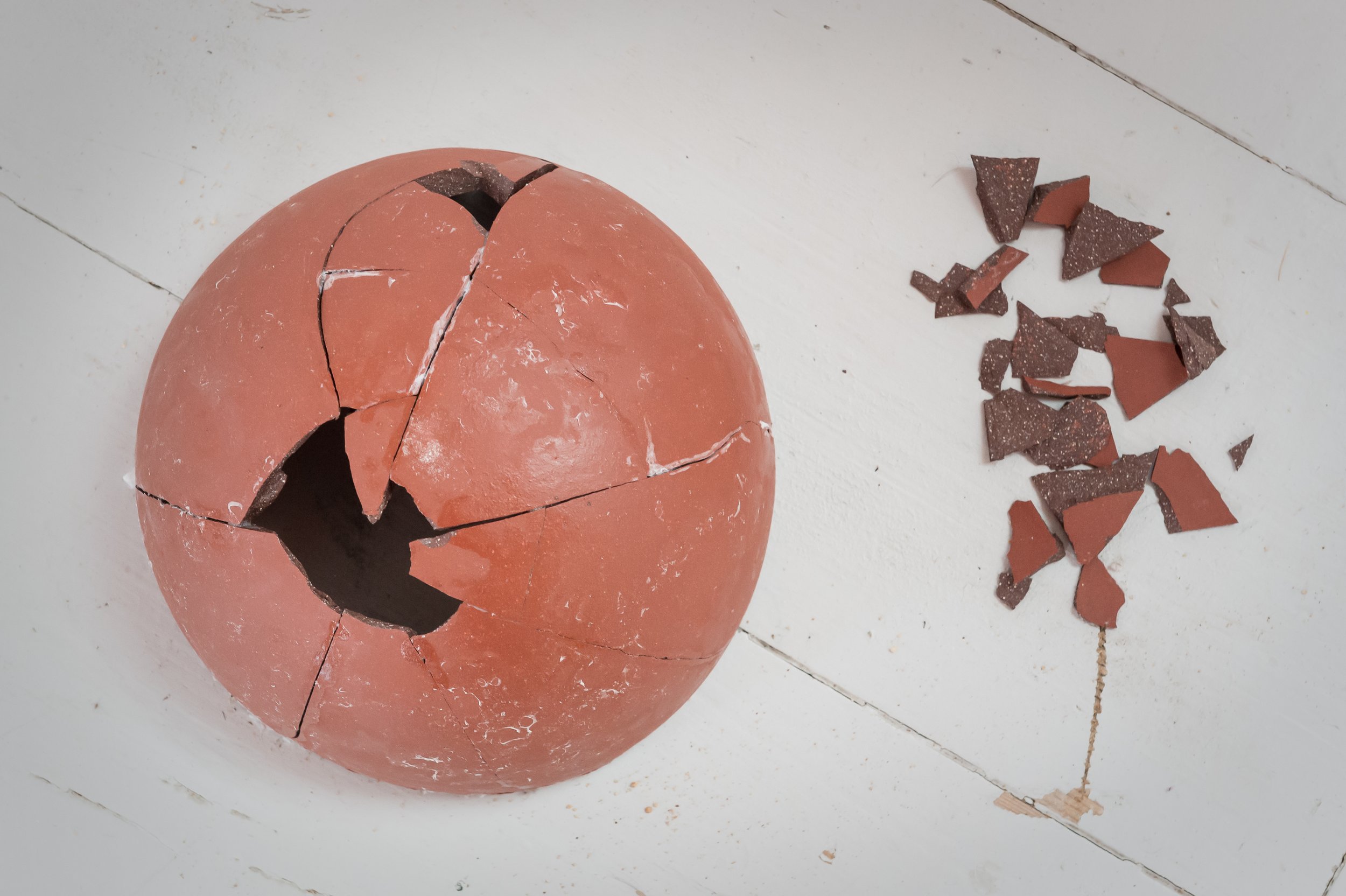



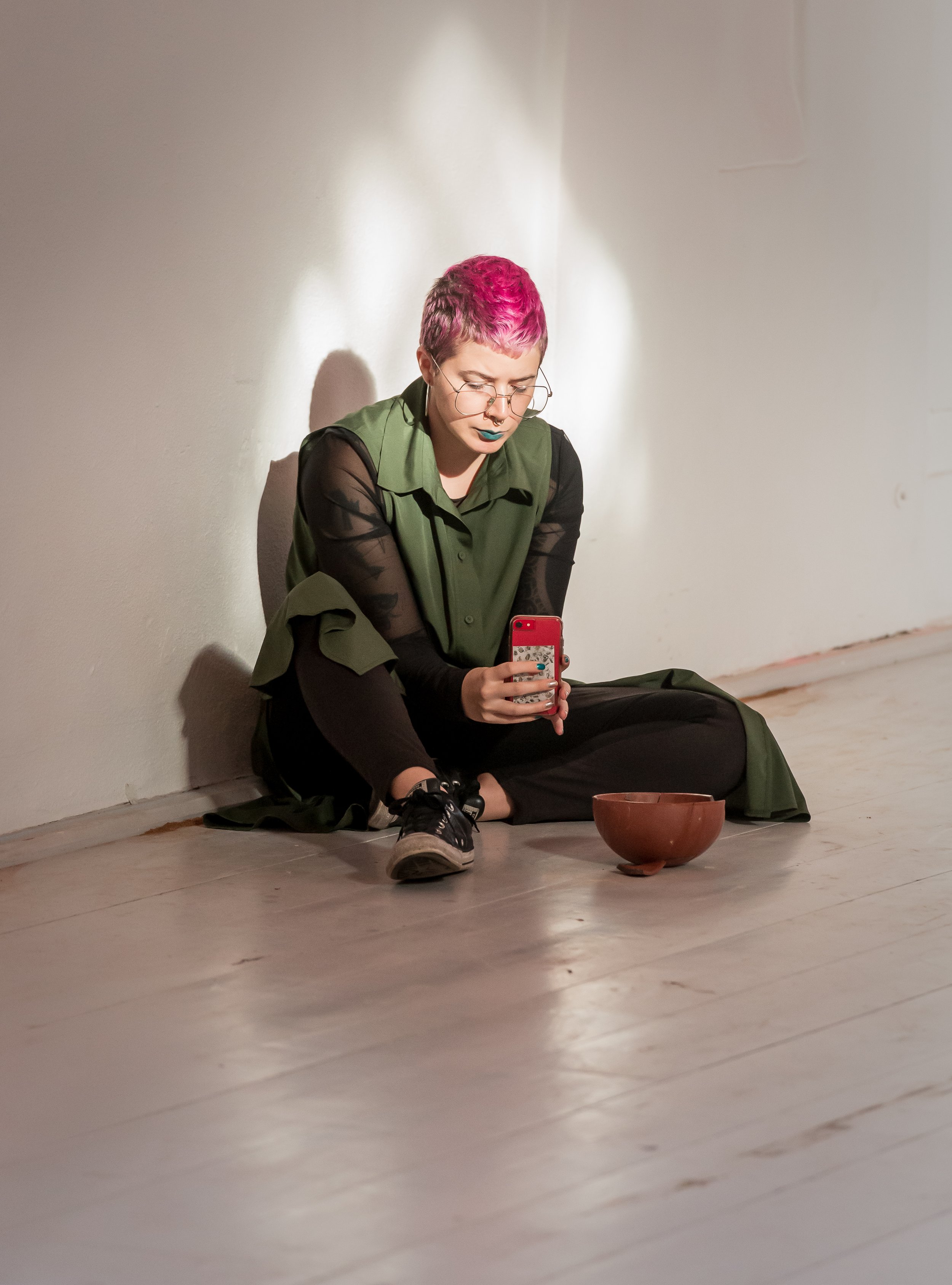



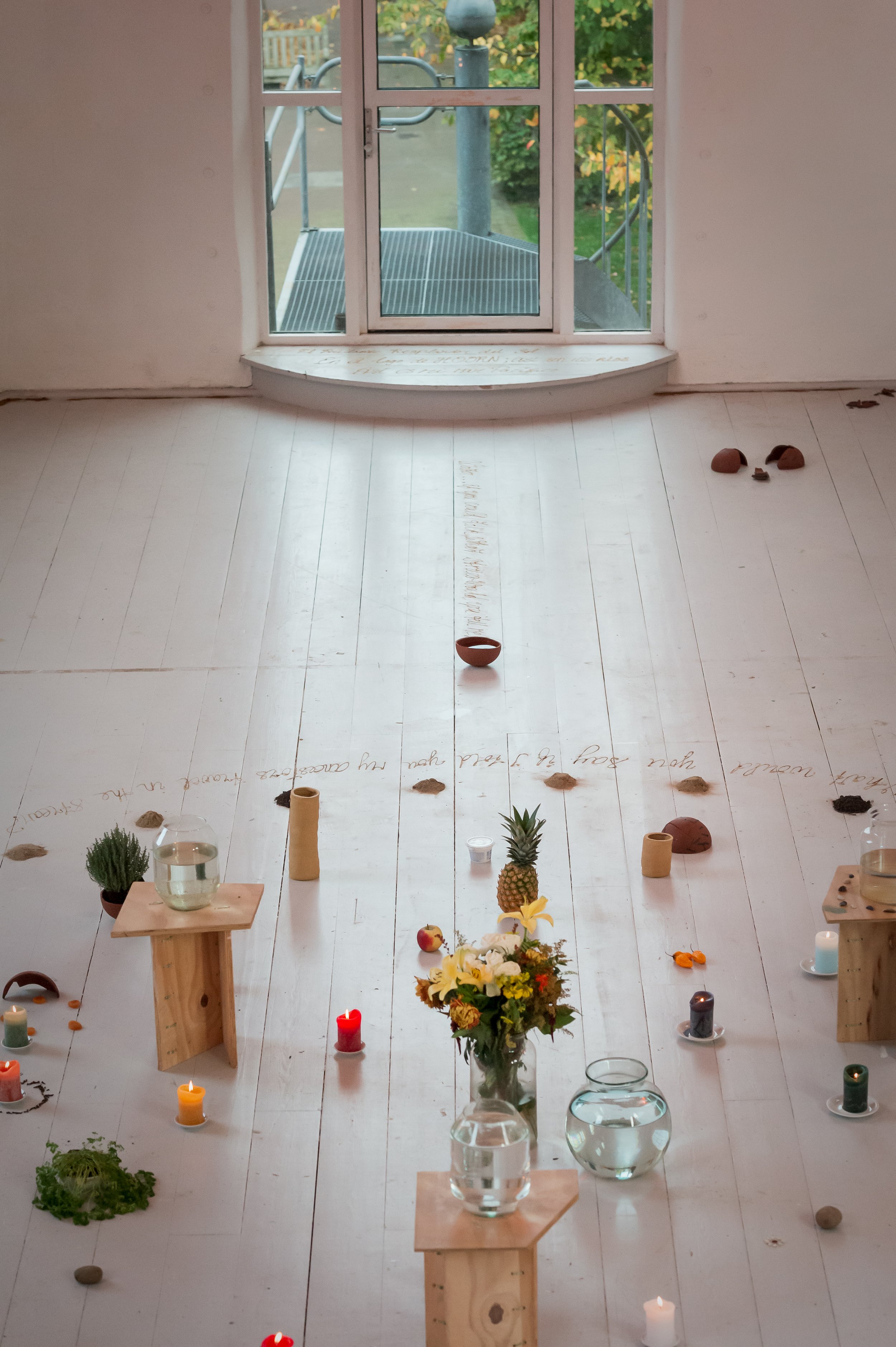

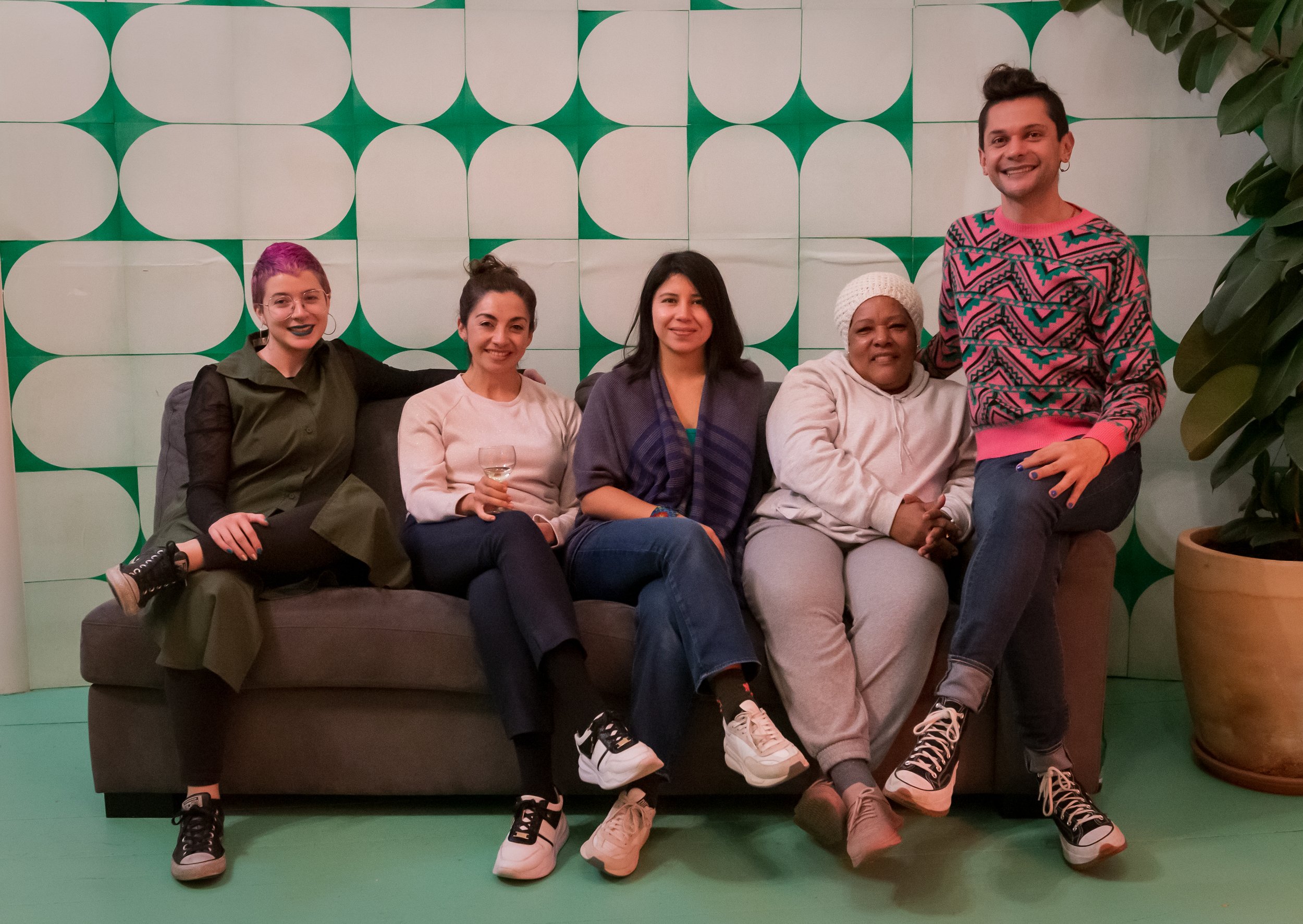
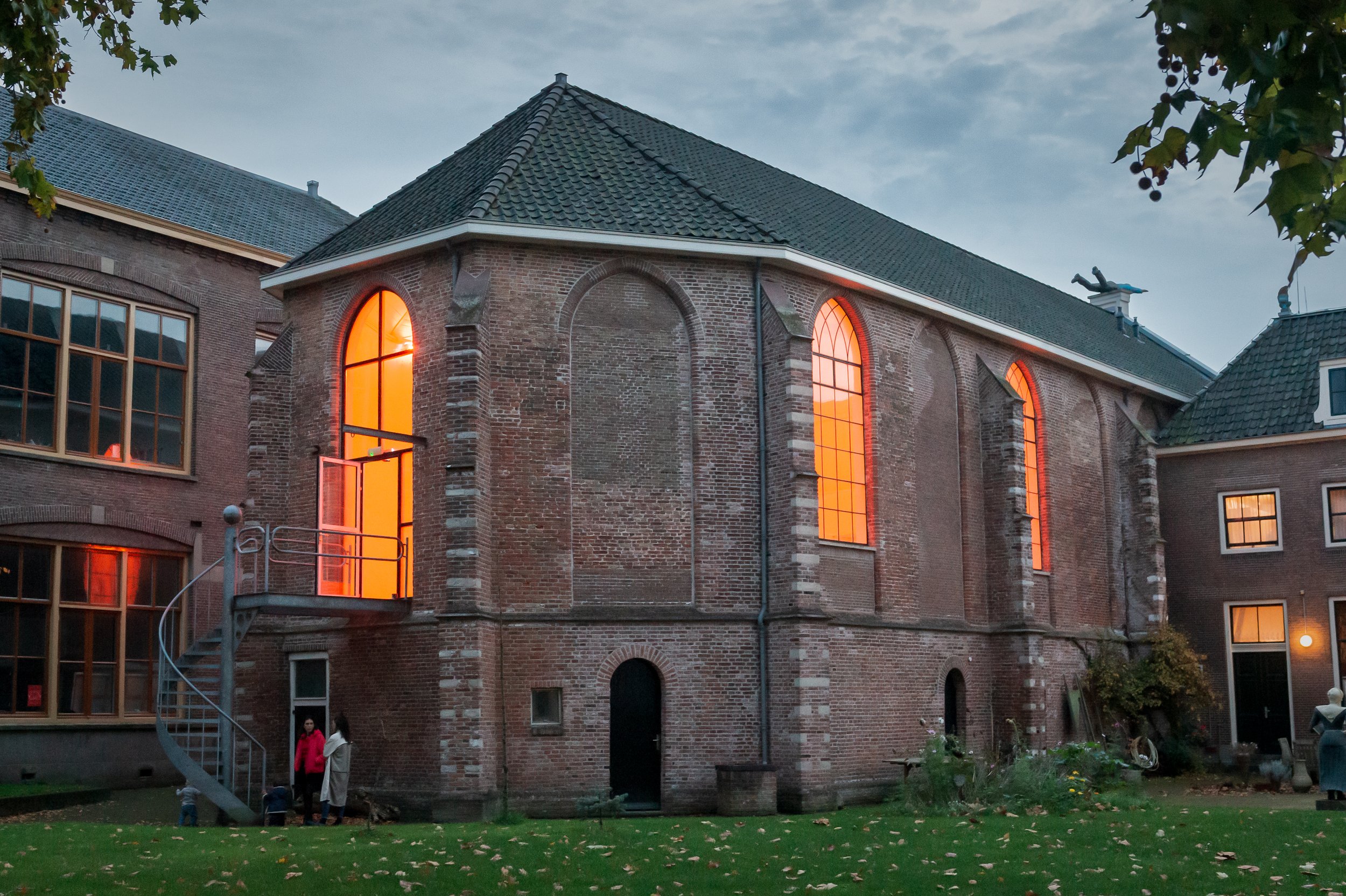


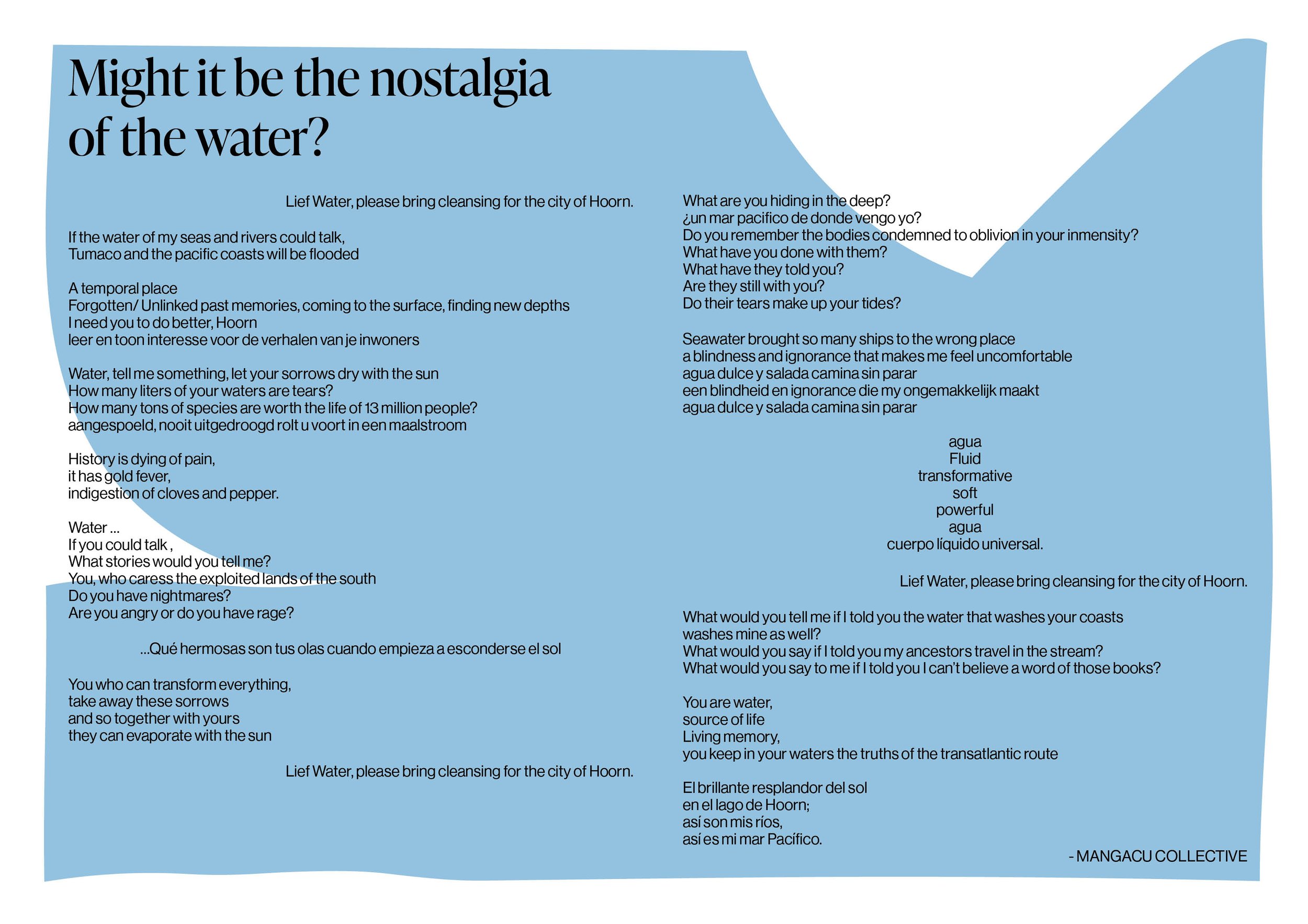

Ana Bravo-Pérez was born in Pasto, in the southwest of Colombia. Her studies, publications and work in the field of film and visual arts brought her via New Zealand, Venezuela, Cuba and Argentina to the Netherlands to study at the Dutch Film Academy. Ana's interdisciplinary and multimedia work develops around migration, memory and decoloniality, drawing on her own migratory and diasporic experiences. These experiences have been crucial in building an artistic practice that fuses personal, (de)colonial and geopolitical spaces while questioning the materials of the artistic methods chosen. Her work has recently been shown in institutions including puntWG, Amsterdam; Kunstverein, Göttingen; Worm, Rotterdam; Engauge Experimental Film Festival, Seattle; Museum of Contemporary Art (MAC) Bahía Blanca; Cinemateca de Bogotá.
Tomás Espinosa's work consists of investigating sculpture and the process of creating time through performative situations, which take place in public space where the artist examines the histories of their location and the conditions of possible encounters. Tomás is affiliated with the Universität der Künste Berlin (2011-2016) and participated in the Institut für Raumexperimente programme led by Olafur Eliasson (2011-2014). Espinosa held collaborative exhibitions, performances and workshops in several countries. Her last project called Transinflabe ( 2018 - 2019) was in collaboration with Red Comunitaria Trans Bogotá. This consisted of a creative laboratory for the rights and visibility of transgender sex workers in Bogotá.
Mariela Meza is a human rights activist in Tumaco, Colombia. For 12 years, she has been a member of the Mesa, a body made up of a delegation of women who safeguard human rights in a Colombia tormented by violence and armed conflict. Her mission is to empower women emotionally, politically, personally and economically. Over the years, she has developed several initiatives aimed at women's economic entrepreneurship, with the aim of restoring and reviving the ancestral practices of the black peoples of the region. She is also the coordinator of the organisation Palenque Afro Urbano, a body that works for people whose rights have been historically and systematically violated, even after the official abolition of slavery and the recognition of the ethnic rights of black, palenquero and afro peoples in the Colombian Political Constitution of 1991.
Paula Gempeler is a feminist philosopher who graduated from the National University of Colombia, with extensive experience in training human rights defenders with a focus on rural and urban areas. She is an activist who fights for an inclusive collective memory through cultural and artistic expressions with a gender perspective. She addresses these issues in the context of war and reconstruction, transitional justice and the history of armed conflict in Colombia.
María Teresa is an art historian at the Universidad Nacional Autónoma de México and a graphic designer at the Universidad del Cauca (Colombia). She is director of the art consultancy and culture agency Mencanta. In recent years, her experience has focused on creating an audience for art as an irrefutable means of social transformation. She founded Mencanta as a platform to promote the careers of artists and their works in the social environment, creating new collectors, galleries, cultural offerings and above all lives more inspired by the aesthetics and awareness of the world that art brings.
